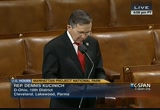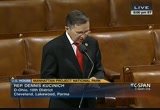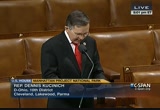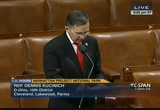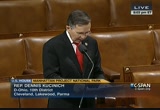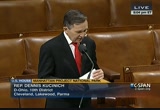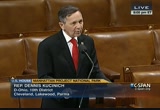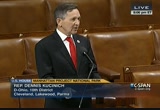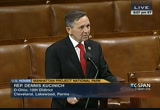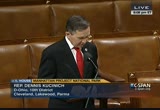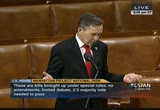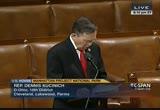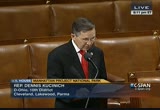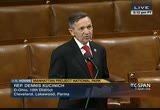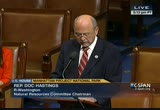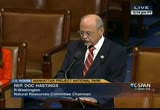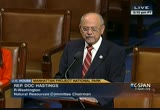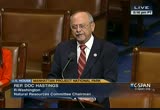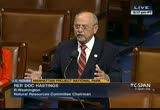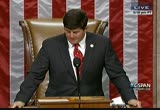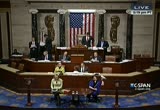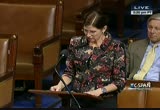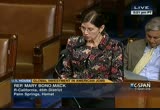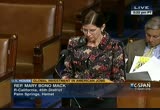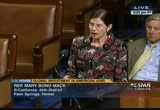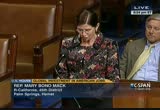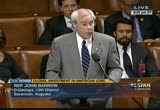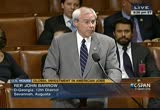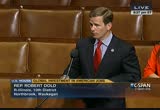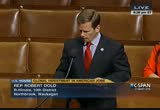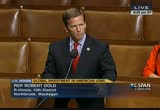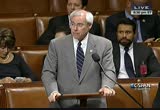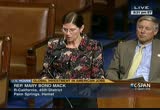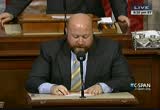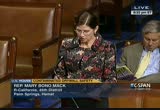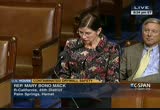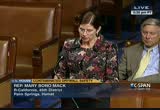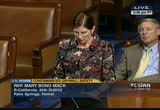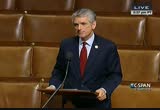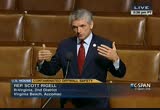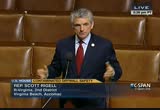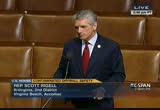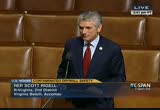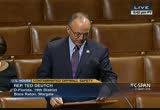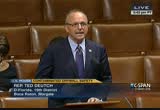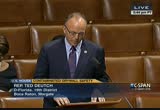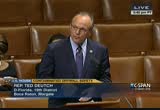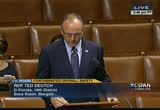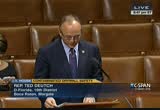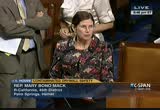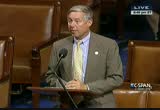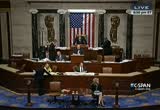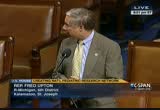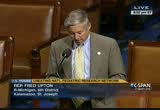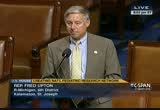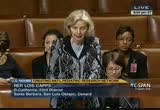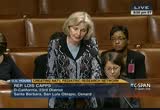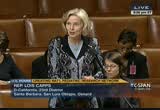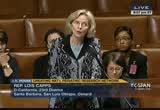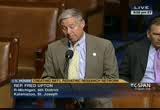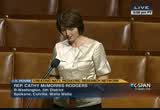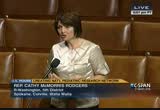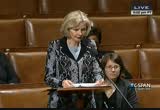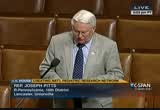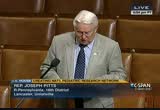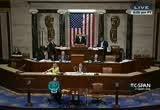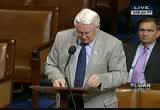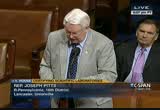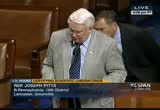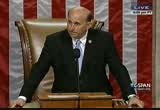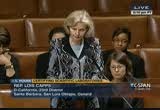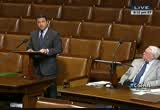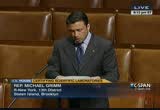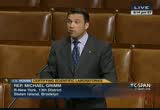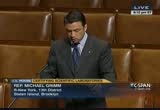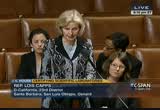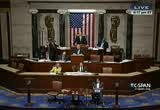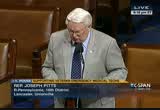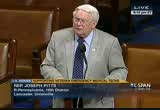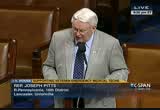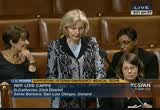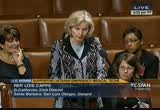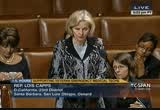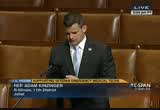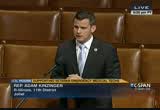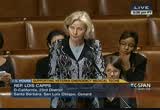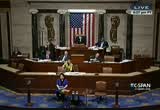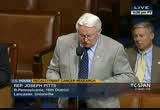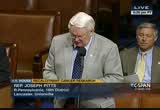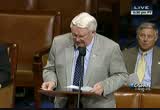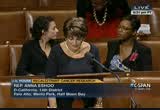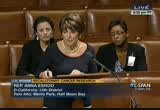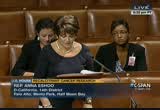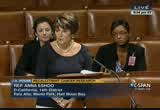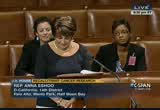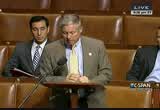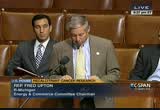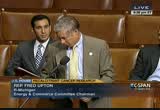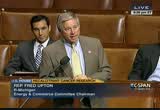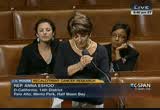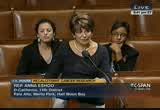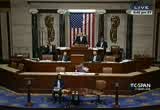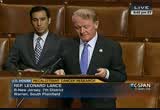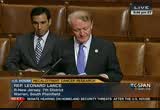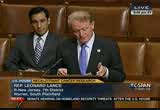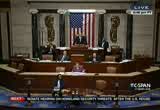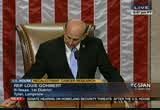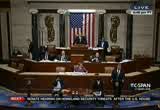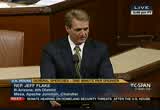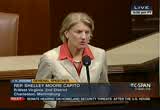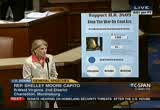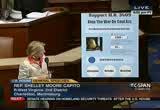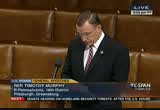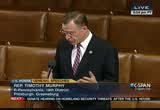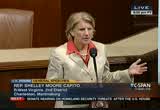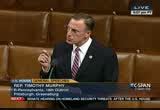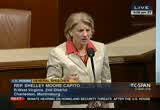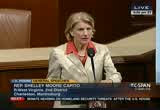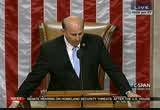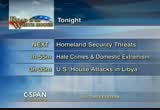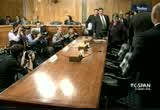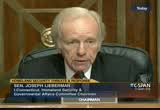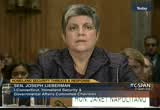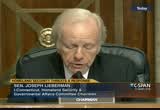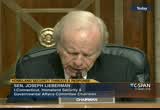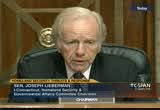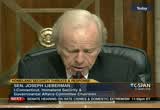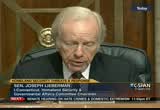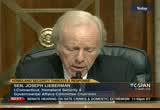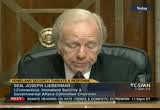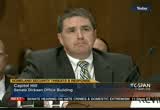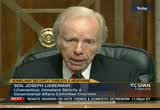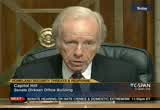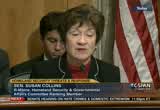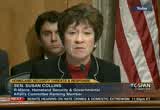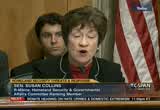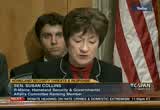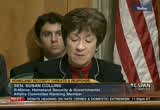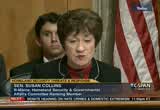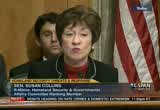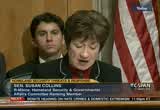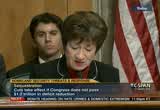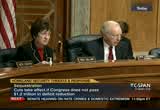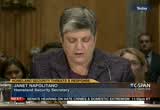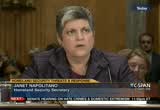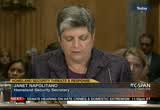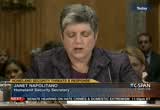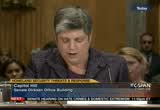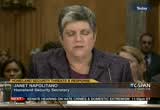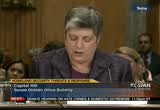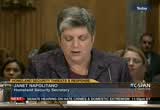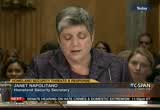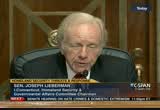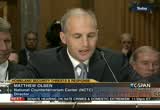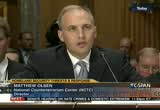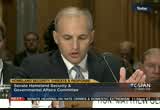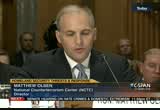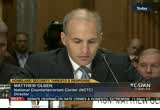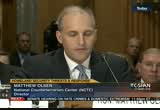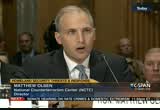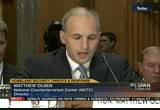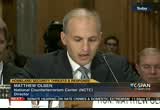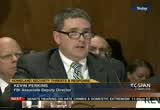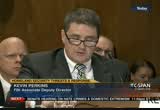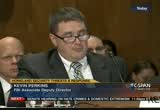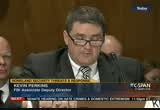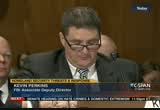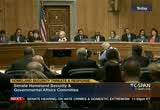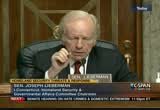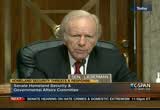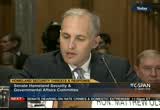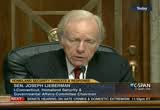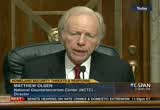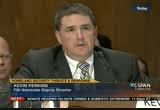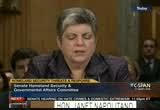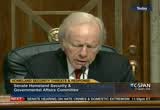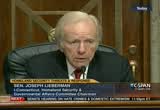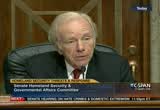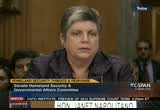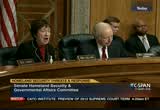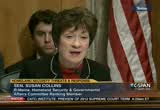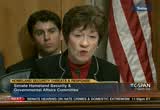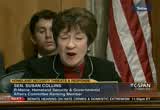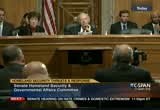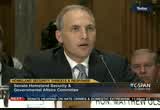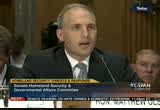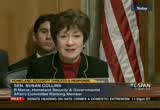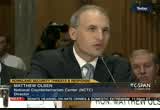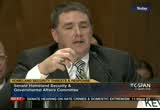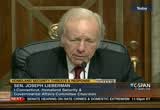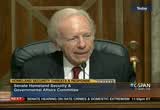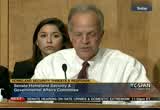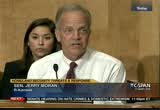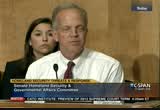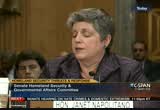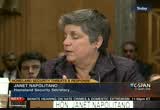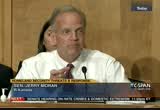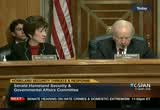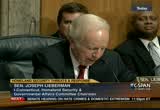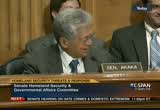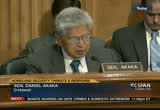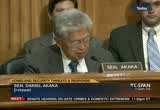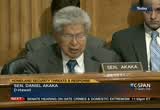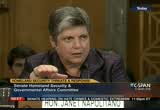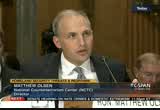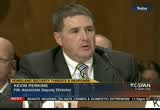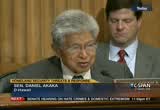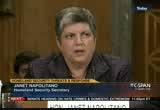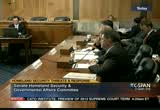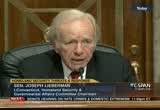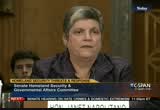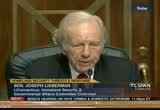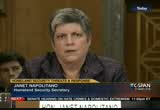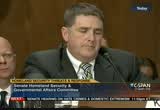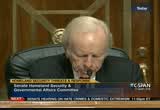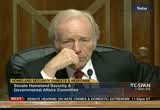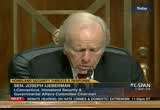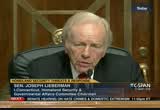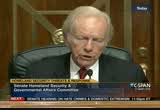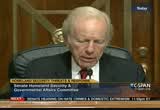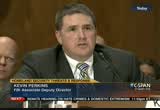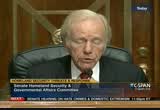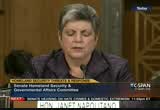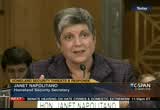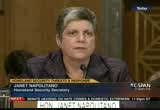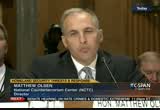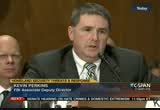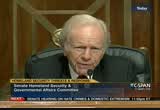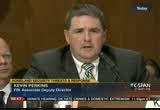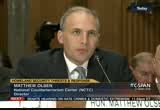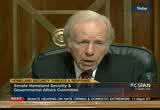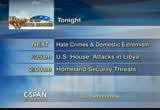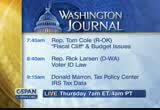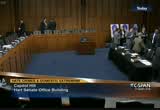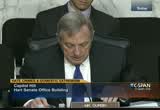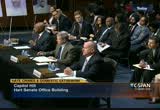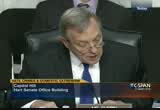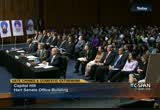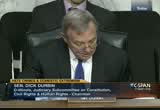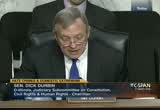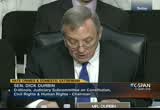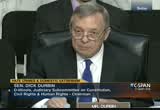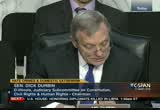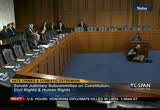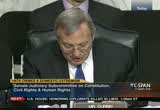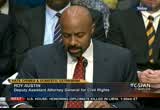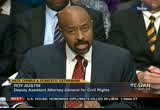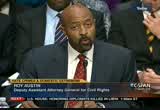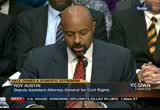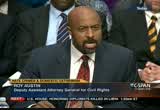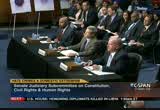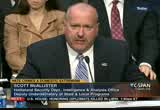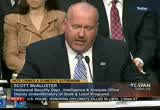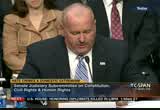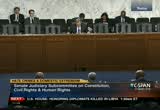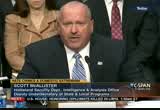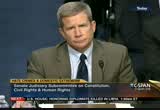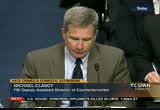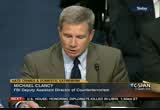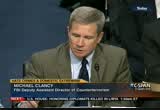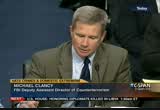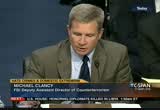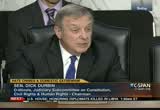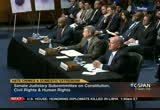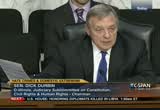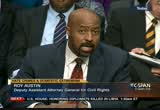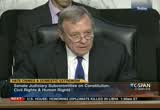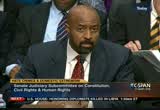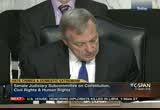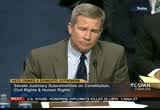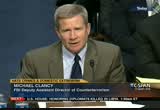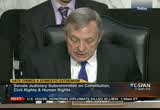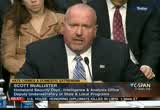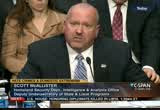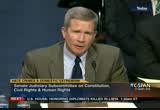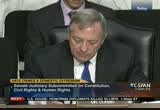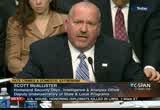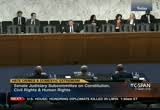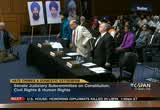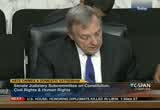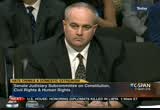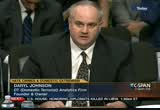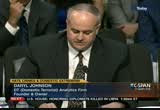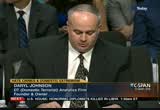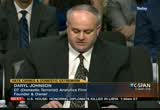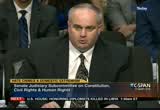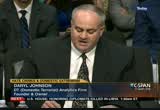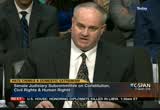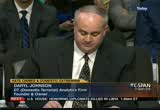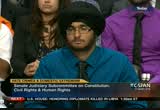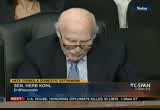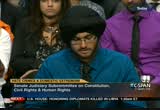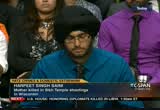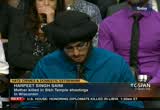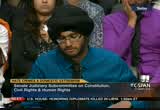tv Capitol Hill Hearings CSPAN September 19, 2012 8:00pm-1:00am EDT
8:00 pm
norman cousins was a consultant to general mcarthur during the american occupation of japan. cousins writes of his conversations with mcarthur. his views about the decision to drop the atomic bomb was starkly different from what the general public presupposed. when i asked the general about the decision to drop the bomb, i was surprised he hadn't been consulted. when, what, i ask, would his advice have been. he saw no military justification for the droping of the bomb. the war might have ended weeks earlier if the united states had agreed to the retention of the institution of the emperor. that's from a book called "the pathology of power," norman cousins. leo jilad was the first
quote
8:01 pm
scientist to conceive how an atomic might be made in 1933. he speaks of a meeting with the head scientist of the manhattan project. here's the quote. i
8:02 pm
it and we knew we didn't need to do it, and they knew that we didn't need to do it, we used them
8:03 pm
control of their own air, commander general arnold. the japanese had in fact already sued for peace. the atomic bomb played no decisive part in the sea of japan. chester wnimitz, commander of the pacific fleet, quote, the use of atomic bombs was of no material assistance in our war against japan. the japanese were already defeated and ready to surrender. this is admiral leahy, quote, certainly prior to the 31 of december, 1945 a in all probability prior to 1 november, 1945, japan would have probably surrendered. quote, and that's from the strategic bombing survey. the war would have been over in two weeks without the russians
8:04 pm
entering. the atomic bomb had nothing to do with the end of the war at all. this is from colonel general lemay. this technology was not necessary. so let's go back to the creation of a national park and the naming of the park after the manhattan project -- may i ask how much time i have? the speaker pro tempore: the gentleman has 10 minutes remaining. mr. kucinich: thank you. we have to ask ourselves, since it can be widely disputed and by top military officials that the dropping of the bomb was not necessary, then why are we naming this -- honoring this technology with a national park? it is really a legitimate question.
8:05 pm
when the u.s. dropped atomic bombs in japan in august of 1945 again, 200,000 people were killed. and to have this discussion in the context of honoring a technology that created a bomb, i think, really raises questions about where we are with this country and where we are with the bomb. the splitting of the atom and the use of the split atom to create a atomic bomb bespeaks an intensification of thinking, of us versus them, whoever they are. we then decided that all of our problems in humanity could be solved by technology, that the bomb was then put in place of reason, that the bomb was put in
8:06 pm
place of diplomacy, that the bomb was in place of talking with each other and settling our differences. the bomb then became the meta phor of how it rules over humanity. we are captives of our own machine. i remember as a young person going to elementary schools doing drills as duck and cover because we believed that the united states was going to be attacked by nuclear weapons. the fear drove entire generations, the fear caused the united states to spend trillions of dollars on a cold war that took away from the needs of the people. the fear resides in the world today, when there are some who urge an attack on iran, why? because they are said to be developing a nuclear weapon.
8:07 pm
where does this stop? we cannot honor this technology. we cannot celebrate ingent that was used to put humanity at risk. we have to begin to reassess who we are as human beings and ask ourselves whether or not we have essentially reached the limits of our ability to develop technology which we can control. and it's not only about nuclear weapons. when you learn that the south is experiencing tremendous upset because of the human activity, when you learn that science can now create or beganisms that can change the nature of food. matter of fact, life itself can
8:08 pm
be changed through cloning, we ask these many gods who can tinker with our planet and life itself and name parks after it. no. in the scheme of things, some will say, dennis, this is just a park, what are you so excited about? this is about a naming a new national park after the manhattan project. and we have to just stop and reflect on where this takes us. there should be a discussion about the full legacy of the manhattan project, including its devastating effects upon the japanese people and upon the rest of the world. if there was going to be a new
8:09 pm
park, it should serve as a solemn monument to japanese-american friendship that rose from the ashes and worldwide work for nuclear disarmament that continues to this day rather than a celebration of a technology that has brought such destruction to the world. now, our failure to recognize this dimension, even in its first iteration, is a significant injustice. i looked at the c.r.s. report on this and there is no mention of how this is going to be framed or phrased. the museum at lossal most, is a -- los alamos and we are developing technology at a rate
8:10 pm
that far exceeds at a rate to manage it. we are now memorializing a national park. how much time do i have left? the speaker pro tempore: the gentleman has 4 1/2 minutes. mr. kucinich: i want to read a poem by henry reed, called "the naming of parks," and he juxtaposes in this poem, japan before the dropping of the bomb and the technical aspects of the bomb itself. it's worth reading for this discussion. calls it "the naming of parks." today we have the naming of parks. yesterday, we had daily cleaning and tomorrow morning, we shall have what to do after firing. but today, today, we have the naming of parks.
8:11 pm
like coral and all of the neighboring gardens, today we have the naming of parks. this is the roller sling swivel and this is the upper sling swivel that you will see when you are given your slings. this is the piling swivel, which in your case you have not got. the branches holding the garden, silent, ellquept gestures, which in our case we have not got. this is the safety catch, which is released with an easy flick of the thumb. and please do not let me see anyone using his finger. you can do it easily if you have strength in your thumb. the blossoms are fragile and motionless, never letting anyone
8:12 pm
see any of them using their finger. and oh, this, you can see is a bolt. the purpose of this is to open the bridge as you see it. we can slide it rapidly backwards and forwards and we call it using the spring and the early bees are assaulting and fume bling the flowers. they call it easing the spring. they call it easing the spring and perfectly easy if you have any strength in your thumb like the cocking piece and point of balance, which in our case, we have not got and the blossoms, silenced in all of the gardens and the bees going backwards and forwards, for today, we have the naming of parks. we are naming a park today, yesterday, we had the naming of
8:13 pm
parks and not just japan that our humanity was obliterated, until we get a chance to reclaim it. and i reserve. the speaker pro tempore: the gentleman reserves the balance of his time. the gentleman from washington is recognized. mr. hastings: i'm prepared to close if the gentleman will yield back his time. mr. kucinich: i yield back. the speaker pro tempore: the gentleman yields back the balance of his time. the gentleman from washington is recognized. mr. hastings: i yield myself such time as i may consume. the speaker pro tempore: without objection. mr. hastings: mr. speaker, this bill is not as complicated as my good friend from ohio tries to make it appear to be. now i recognize and we have had conversations on this when the bill was introduced and i respect his opinion, but i respectively disagree with his opinion and his arguments. there's nothing wrong with that. we are americans and we can do that in america.
8:14 pm
but i want to -- and the gentleman, what i heard him saying is what if, and what would be an ideal world. we would like to have an ideal world, but let's talk about reality at that time. we were forced into the second world war. germany, of course, had started that war with the blitz krieg into poland and japan started expanding and they were going into the pacific and they attacked us on december 7, 1941. whether we liked it or not, we were in a war for survival. no question about that. that is simply the facts and in the process of carriering out that war and let me say that war is absolutely unpredictable
8:15 pm
because if you are logically thinking about war, it wouldn't have happened in the first place. but the very nature of war is unpredictable. we wouldn't know where we were, but we had heard that the nazi germany was developing an atomic weapon. now, they had been building a military machine long before because we were caught off guard, so we had to use whatever technology we had in order to defend our freedom. and one way that was decided was to build an atomic weapon if we had to use an atomic weapon. and what this bill purports to do is nothing more than to talk about the ingent of the american people to develop this weapon when the nuclear industry was in its infancy and in a short time,
8:16 pm
that is something we ought to put into our history books, because we do put past battles in our history books. just earlier this week was the 150th anniversary of antietam, right up the road in sharpsburg, maryland. and yet we memberalize the battlefield, because it preserved our union and got it back together. it is right we look at these from that perspective. . . i know how tough it was for president truman, shortly after president roosevelt died, to make this decision he made it because given the information he had was that it would save more lives than it would cost by dropping the bomb. that's the judgment he made.
8:17 pm
let me speak again about the ingenuity and technology of what happened and i can only speak about my area, hanniford, and about specifically the b-reactor. this is the first nuclear reactor built in this country. and from start to finish, it was built in less than a year. and the technology at that point wasn't even proven. yet when they started the b-reactor, and went hot as they said, it obviously did what it was supposed to do. it was a tremendous scientific achievement. thope up to the public and open this up to schoolchildren to see what we can do and what we did in this country to protect the freedoms and liberty we have i think is worth preserving. again, all this does is take those three main sites that are largely, owned by the government, transfer it to the national park service and show it to the public so we can
8:18 pm
learn and remember what happened during that time. finally, mr. speaker, let me say that i've been down on this floor many times criticizing the obama administration but the obama cradmrgs through secretary salazar and the department of the interior is in favor of legislation that does what this bill and the senate bill hope to do. while i have differences with them, i certainly congratulate them for recognizing how important this legislation is. so with that, mr. speaker, i urge adoption of the legislation and i yield back the balance of my time. the speaker pro tempore: the gentleman yields back. the question is, will the house suspend the rules and pass h.r. 5987 as amended? those in favor say aye. those opposed, no. in the opinion of the chair, 2/3's being in the affirmative, the rules are suspended --
8:19 pm
mr. kucinich: mr. speaker. the speaker pro tempore: for what purpose does the gentleman from ohio rise? mr. kucinich: i ask for a recorded vote. the speaker pro tempore: the yeas and nays are requested. those in favor of taking this vote by the yeas and nays will rise and remain standing until counted. a sufficient number having risen, the yeas and nays are ordered. pursuant to clause 8 of rule 20, further proceedings on this question will be postponed.
8:20 pm
for what purpose does the gentlelady from california seek recognition? >> i move to suspend the rules and pass h.r. 5910, the global investment in american jobs act of 2012. the speaker pro tempore: the clerk will report the title of the bill. the clerk: h.r. 5910, a bill to direct the secretary of commerce along with heads of other departments and agencies to produce a report on enhancing the competitiveness of the united states and attracting foreign direct investment and for other purposes. the speaker pro tempore: pursuant to the rule, the the gentlewoman from california, mrs. bono mack, and the gentleman from georgia, mr.
8:21 pm
barrow, each will control 20 minutes. mrs. bono: -- mrs. bono mack: i ask unanimous consent that all members have five legislative days to revise and extend their remarks and include extraneous material on the bill. the speaker pro tempore: without objection. mrs. bono mack: i rise today in strong support of h.r. 5910, the global investment in american jobs act of 2012. this legislation directs the department of commerce, in coordination with the heads of other relative federal departments, to produce an interagency report on enhancing the competitiveness of the united states in enhancing foreign direct investments. this is a common sense, bipartisan approach to creating new jobs in america. i'd like to thank my colleagues, mr. told, mr. peters, mr. roskam and mr. barrow, for their hard work on this important legislation. i would also like to thank energy and commerce committee chairman upton, ranking member
8:22 pm
waxman and subcommittee ranking member butterfield for bringing h.r. 5910 to the floor. it has the support of leading businesses, including the chamber of commerce, the association of global automakers and the national association of manufacturers. today with our economy stuck in a dangerous quagmire and with unemployment still above % for a record 43 straight months work eneed to take a long, hard look at u.s. policies which serve as barriers to foreign direct investment in our nation here at home. the goal of the global investment in american jobs sacramento to produce a much-needed competitiveness assessment report to congress along with a list of recommendations to make the u.s. more appealing to global companies seeking to expand beyond their borders. this legislation comes at a very critical time. the value of cross border investment has grown dramatically around the world but america isn't cashing in
8:23 pm
like it once did. just a deck -- just a decade ago, the u.s. attracted more than 41%, excuse me, of all global foreign investment. today that number has fall ton 18%. a steep, costly, and unacceptable decline. in many ways we're being outrecruited by other nations. in a recent global rankings of the world economy, the u.s. slipped from sixth to seventh marking the fourth straight year in which our nation has shown a decline despite having the world's largest economy. this constant chipping away at america's ability to compete for foreign investment is contributing to our unacceptably high unemployment rate and adding to our exploding national debt. this legislation is simply one way to fight back. international investment has long served as an engine for u.s. economic prosperity and can play an important role in our economic recovery in the years ahead. today the u.s. subsidiaries of international companies employ
8:24 pm
5.3 million american workers, account for about 15% of the country's manufacturing work force, produce more than 20% of all u.s. goods exported and fund more than $40 billion of annual research and development activities. these companies also support a diverse supplier kneltwork throughout our country, purchasing roughly $2 trillion in annual goods and services that help to sustain thousands of small and medium-sized american companies. the global investment in american jobs act aims for the very first time to identify barriers to new investment and to produce a road map for attracting and retaining top tier businesses from around the world. strong investment promotion policy will not only spur international companies to create jobs here in the u.s., but it will also encourage other neighs to open their markets to u.s. investment to access foreign markets. simply put, this legislation sends an important message to
8:25 pm
the world. today, america is not only open for business but it's also a great place to do business. with that, mr. speaker, i reserve the balance of my time. the speaker pro tempore: the gentlelady reserves. the gentleman from georgia is recognized. mr. barrow: i yield myself such time as i may consume. the speaker pro tempore: without objection. mr. barrow: thank you, mr. speaker. i too rise in support of h.r. 5910, the global investment in american jobs act of 2012. our skessdz as a country depends more and more on being competitive in a global economy. the united states has historically been an attractive investment for foreign businesses. in fact, foreign osed -- owned businesses had over -- add over five million good-paying jobs to the u.s. labor force, produce nearly 18% of all u.s. exports, pay nearly 17% of all u.s. corporate income tacks and
8:26 pm
purchase nearly $2 trillion a year from other domestic small businesses. this bill simply requires the department of commerce to work with the heads of other relevant federal departments to conduct a review of u.s. laws and policies that affect foreign investment in the u.s. and then make recommendations on how to be more competitive in attracting foreign investment. as our global competitors continue to develop, we have to continue to evolve as well to keep up this will give us a fuller picture of our challenges and opportunities to develop a coordinated strategy for success. it's the key to our economic well being in the years to come. i want to thank congressman told, congressman roskam and congressman peters for their collaborative and bipartisan work on this bill. working together isn't just the right way to do things around here. it's the only way to actually get anything done around here. however much we may tend to forget that in this body, it's the only way to truly represent the nation as a whole. with that, mr. speaker, i
8:27 pm
reserve the plans of our time. -- the balance of our time. the speaker pro tempore: the gentlelady is recognized. mrs. bono mack: i'm pleased to yield five minutes to the gentleman from illinois, mr. told. the speaker pro tempore: the gentleman is recognized. mr. dold: i want to thank my good friend from california for yielding the time and for her leadership on the subcommittee. global investment grows our economy right here at home. it means good-paying, solid american jobs. the united states is the premiere location around the world for companies to invest and establish operations. but the reality is that other nations are getting better at challenging the united states for foreign direct investment opportunities. in fact the united states share -- the united states' share of global foreign investment has declined, as my friend pointed out, from over 4% in 1999 to
8:28 pm
17.6% in 2009. while america leads the way in attracting this inbound or inward investment, the data makes it clear we must do better in order to remain the premiere location for -- premier location for global investment in the 21st semplingry. that's why i'm proud to introduce and champion h.r. 5910, the global investment in american jobs act. i urge my colleagues who are focused on improving our economy and creating american jobs to vote in support of this legislation so that it can get signed quickly by the president. the global investment in american jobs act has earned broad bipartisan support both here in the house and in the united states senate. i want to thank congressman roskam, congressman barrow, congressman peters, as well as senators kerry and corker for helping lead the push for this legislation. i also want to thank the many co-sponsors who recognize how important this legislation is to growing our economy and
8:29 pm
keeping jobs here at home. this legislation provides a road map for enhancing the u.s. competitiveness in attracting foreign direct investment into the united states. it does this by expanding on an existing commerce department report and charges the commerce department to identify certain policies and regulations, whether those are in existence intentionally or more importantly indirectly or unintentionally that might create a barrier for investment here in the united states. it also helps us gain a better understanding of which current policies promote this much-needed global investment into the united states and into our communities. mr. speaker, in illinois, in sourcing currently accounts for a little over 273,000 direct jobs, including many great jobs in the 10th district of illinois. but it's not just in illinois. the benefits of this inbound investment is seen in literally every state, helping us to
8:30 pm
sustain innovation, manufacturing, trade, supplier networks, and over five million direct jobs throughout our nation. but with other nations actively reforming their policies in an effort to make their countries increasingly more competitive for tpwhrobal investments, it's critical that the united states do the same. promoting and encouraging global investment into our country and the jobs that will come with it is something we all should promote. it's something that has been identified as key to economic growth in our country, certainly in the chicago region and it is something that i'm proud to lead the charge on in congress. i urge my colleagues to vote iowa on the legislation and -- to vote aye on the legislation and i want to thank my colleague from georgia for his leadership as well. i yield back. the speaker pro tempore: the gentleman yields back. the gentleman from georgia is recognized. .
8:31 pm
mrs. bono mack i don't have any further speakers and i'm prepared to close. mr. barrow: i thank once again, congressman dold, congressman roskam and congressman peters and with that, i yield back. the speaker pro tempore: the gentleman from georgia yields back. the gentlelady from california is recognized. mrs. bono mack there is no magic bullet to putting americans back to work but what we can do is end the endless roadblocks to job creation. today, we are going nowhere fast. this bill will help america moving again by developing a much needed plan for attracting top-tier businesses from around the word. with more than 23 million americans who are unemployed and underemployed, we need to cut that and develop a new road map for prosperity. the global investment in american jobs act of 2012 is one way. mr. speaker, i applaud my colleagues for the hard work and
8:32 pm
i thank them very much for what they have done and i urge my colleagues to adopt h.r. 5910. and when it comes to job creation, another piece of the puzzle that fits perfectly and i yield back. the speaker pro tempore: the gentlelady yields back. the question is, will the house suspend the rules and pass h.r. 5910 as amended. those in favor say aye. those opposed, no. in the opinion of the chair, 2/3 being in the affirmative, the rules are suspended and the bill is passed and without objection, the motion to reconsider is laid on the table. for what purpose does the gentlelady from california seek recognition? mrs. bono mack i move to suspend the rules and pass h.r. 4212 the drywall safety act of 2012 as amended. the speaker pro tempore: the clerk will report the title.
8:33 pm
the clerk: a bill to designated drywall manufactured in china a banned hazardous product, and for other purposes. the speaker pro tempore: pursuant to the rule, the gentlelady from california, mrs. bono mack and the gentleman from florida, mr. deutch, each will control 20 minutes. the chair recognizes the gentlelady from california. mrs. bono mack i ask unanimous consent that all members may have five legislative days in which to revise and extend their remarks and insert extraneous materials into the record on h.r. 4212 and include letters from the committee on energy and commerce and committee on foreign affairs. the speaker pro tempore: without objection. mrs. bono mack i yield myself
8:34 pm
such time as i may consume. as chairman of the subcommittee on commerce, manufacturing and trade which has jurisdiction over the consumers products safety commission, i rise in strong support of h.r. 4212, a bill to help the federal government fight the problem of potentially hazardous chinese drywall and thank my colleague for -- congressman rigell for all of his hard and thoughtful work on this important legislation. today, if something smells rotten, chinese dry wall may be blame. they have identified emissions from some of the drywall which leads to a stench like rotten eggs. it is time to address this problem which exploded after hurricane katrina.
8:35 pm
chinese drywall has entered the u.s. since 2006 to build u.s. homes, many of which are located in the southeastern u.s. he missions worsen as the temperature and humidity rise and becomes blackened and cor oweded. many people have complained about problems such as chronic coughing, asthma attacks and that's in addition to headaches and sign us issues. most of the companies that made this are made by the chinese government and refused to appear in american courts or appear in investigations. in some cases, the u.s. builders have stepped up on their own to correct the problem that thousands of others had to sue or eat the cost. h.r. 4212 is one way to prevent
8:36 pm
this problem from happening again in the future. but at the same time, we are trying to help people who are already impacted. this bill directs the secretary to come up with a fair solution to settle outstanding claims. h.r. 4212 requires labeling of all drywall with the name of the manufacturer and date. in the past, the lack of this critically important information has been a real problem because homeowners couldn't tell in many cases which company manufactured that bad drywall. and this legislation requires the consumer products safety commission has to limit the concentration drywall unless they come up with a safety standard first. science has spoken. this isn't the case of we think we have a problem. today, we know we have a problem. china chooses to ignore it, but america chooses to do something
8:37 pm
about it. i urge the adoption of this bill and i reserve the balance of my time. the speaker pro tempore: the gentlelady reserves. the gentleman from florida is recognized. mr. deutch: thank you, mr. speaker. mr. speaker, i would be prepared reserve my time if my friend, mr. rigell would like to speak first. the speaker pro tempore: the gentleman from florida reserves. and the gentlelady from california. mrs. bono mack i recognize my colleague, mr. rigell, for five minutes. mr. rigell: i thank the gentlelady for yielding and thank my colleagues for being here tonight to support a great and much needed piece of legislation. and i rise in support of the drywall safety act of 2012. this is a bill about protecting the american family, both their physical health and financial
8:38 pm
health. mr. speaker, this is about doing what is right to address a terrible injustice that is followed upon so many families, many of overwhelm who live in the second congressional district of virginia. these are families that are reeling financially and also in their health has been damaged because of drywall that was manufactured in a detective manner in china and installed in homes across our great land. they are friends and neighbors, hard-working folks who saved and both homes and were living the american dreams. and their dreams, mr. speaker, so often has turned into a true nightmare. their children have developed bloody noses and respiratory ailments. i have met with these families
8:39 pm
and having to pay for their current home which is uninhabitable and maybe attempt to buy another home. it is financial stress that so many of the families have been unable to adjust to. and many that i have met with have filed financial bankruptcy. i appreciate the leadership of the chairwoman this evening and my friend and colleague, representative, deutch, a co-chair man with me. we have introduced a bipartisan legislation that addresses this problem. and we don't portend that it fixes everything but it is a major and significant step forward. these families -- the only thing they have left is i think hope that will do the right thing here tonight. been over four years that these
8:40 pm
families have been hurting. they look first to the lender, the importers of the drywall to be sure they didn't find relief. some of the banks have given some consideration, but it's not enough. we've got to act tonight in this house. and i trust that we will. the bill takes china to task directly for failing to require manufacturers to compensate the victims and the government of china needs to make right and ensure that those who lost so much are made whole. and as the chairwoman pointed out, clear labeling requirements are incorporated into the legislation and also by limiting the amount of elemental amount of sulfur allowed in the drywall ma will ensure that it is not imported into this country.
8:41 pm
we have gone the route of voluntary standards, if we can go that direction, we can go that way and set up the industry itself to advance and setting industry standards that will apply as well as to foreign manufactured drywall products. i want to express my sincere appreciation to all those who made it possible to bring the bill to the floor today and i want to thank my friend and colleague from florida, representative deutch for your leadership and serving as the co-chair man of our caucus. and i want to thank the majority and minority members and staff of the energy and commerce committee who worked soy hard to navigate a lot of challenges to get this bill to the floor. mr. speaker, this is commonsense
8:42 pm
legislation. it is much needed. i know these families. they are hurting. and i trust and encourage my colleagues to do the right thing tonight and advance this bill and to support it. with that, i thank the gentlelady for yielding time. and i yield back the remainder of my time. the speaker pro tempore: the gentleman yields back the balance of his time. the gentleman from florida is recognized. mr. deutch: i yield myself such time as i may consume. i rise in strong support of this amendment, h.r. 4212. my friend, mr. rigell, is correct. while we have an opportunity to do something for the families of america who are really suffering to do it in a commonsense way, we have every responsibility to take that action. that's what this bill is about and that's what this evening is about. in the wake of 2005 and 2006 hurricane season, a domestic
8:43 pm
shortage of drywall for rebuilding homes and businesses to make up for the shortage, builders began importing drywall from china. not until 2009, reports started to surface that not knowing to the builders and consumers, much of the drywall coming to from china contained sulfur. homeowners in 42 states and the district of columbia, puerto rico and american samoa have been enduring an emergency situation in which contaminated drywall has been causing destruction and damage to their homes. it's also caused serious health problems for families living in those homes and like my friend from virginia, to have the opportunity to visit with the family and listen to them share their stories about the
8:44 pm
illnesses that come one after another and forcing them to move from their homes, one can't help but to be moved from action. copper piping and wiring in homes causes the failure of air conditioning systems, wiring for lighting and other appliances, such could rotion poses potential fire and safety hazards in homes and causes undue financial hardship for homeowners who are forced to repair and repair appliances. the health impact on family members caused by contaminated chinese drywall, many of these homes are simply uninhabitable. some families have to find alternative housing while maintaining mortgages on their homes that are uninhabitable. tremendous strain is being placed on limited family
8:45 pm
finances to replace or make repairs to essential home appliances or pay for other housing options while maintaining that mortgage. these families have been and are in desperate need of assistance. this bill seeks to provide assistance to homeowners that have contaminated drywall and prevent contaminated drywall from entering the future. victims of this problem matic drywall, the secretary of commerce needs to have a meeting between the companies that manufacture the contaminated drywall and the u.s. government to remedy homeowners. in addition, the bill urges the secretary of commerce to insist the chinese government that the companies that manufacture this contaminated drywall and export
8:46 pm
it to this country to submit to the federal courts and to comply with any decisions issued by those courts on behalf of the homeowners with this contaminated drywall. the bill will ensure that similar problematic drywall is not imported into this country and require that each sheet that is imported for use in the u.s. be labeled with the manufacturer and month and year of the manufacture and the bill requires that the consumer products safety commission ensure that future drywall manufacture for use in the u.s. contain sulfur limits that don't have limits in the home and revise the to include a provision that contaminated drywall removed from homes should not be used in the production of new drywall. this bill, mr. speaker, is a
8:47 pm
product of bipartisan negotiations and demonstrates how this house works best when both sides work together to get something done for the american people. i really do want to express my sincere appreciation to my co-chair of the congressional contaminated dry wall caucus for his hard work and leadership on this issue. i also want to thank the energy and commerce committee, particularly chairman upton and chairwoman bono mac for their help as well as the ranking member, waxman and the ranking member of the subcommittee, congressman butterfield. i would like to chang congresswoman and chair ileana ros-lehtinen for her hard work along with ranking member berman in finding a compromise to permit this bill to move
8:48 pm
forward. and i thank my colleague congressman mario diaz-balart for his work if the time the first reports of contaminated dry wall surfaced. for all these reasons and for all the people who have been affected, i urge my colleagues to evening to support the passage of h.r. 4212 and i yield back the balance of my time. the speaker pro tempore: the gentleman from florida yields back. the the gentlelady from california is recognized. mrs. bono mack spiff -- mrs. bono mack: i have no further speakers. i'm going to close, i want to make one more point here, it's a great point, republicans and democrats are united on this very important safety issue. made in china is stamped on everything from toys to consumer electron exs. let's make sure it's stamped on our drywall too and make sure that our quality standards are
8:49 pm
upheld and we stand behind it. i thank the staff of the subcommittee and the full committee for their work over these many past days. with that, mr. speaker, i ask that think -- that my colleagues support this bill, h r. 4212, and i yield back the balance of my time. the speaker pro tempore: the gentlelady from california yields back. the question is, will the house suspend the rules and pass h.r. 4212 as amended. those in favor say aye. those opposed, no. in the opinion of the chair, 2/3's being in the affirmative, the rules are suspended, the bill is pass and -- is passed and without objection the motion to reconsider is laid on the table. without objection, the title is amended. for what purpose does the gentleman from michigan seek -- >> mr. speaker, i ask unanimous consent that the committee on energy and commerce be discharged from further consideration of h.r. 6433 and ask for its immediate
8:50 pm
consideration in the house. the speaker pro tempore: the clerk will report the title of the bill. the clerk: h.r. 6433, a bill to make corrections with respect to food and drug administration user fees. the speaker pro tempore: is there objection to the consideration of the bill? without objection, the bill is engross, read a third time and passed. the motion to reconsider is laid on the table. >> mr. speaker, ski unanimous consent that all members have five legislative days to revise and extend their remarks and insert extraneous materials in the record on this bill, h.r. 6433, and i would like to include these letters in support of the bill. the speaker pro tempore: without objection. >> mr. speaker. the speaker pro tempore: the gentleman from michigan. >> i ask to call up h.r. 6163, the national pediatric research network act of 2012. the speaker pro tempore: does
8:51 pm
the gentleman move to suspend the rules? >> i do. the speaker pro tempore: clerk will report the title of the bill. the clerk: h.r. 6163, a bill to provide for a national pediatric research network including with respect to pediatric rare diseases or conditions. the speaker pro tempore: pursuant to the rule, the gentleman from michigan, mr. upton and the gentlelady from california, mrs. capps will each control 20 minutes. the chair recognizes the secret from michigan. the speaker pro tempore: mr. speaker, i yield myself three minutes. the speaker pro tempore: the gentleman is recognized. mr. upton: this legislation brings us closer to helping children with unmet health needs, especially those with rare pediatric and genetic conditions. according to the national institutes of health, there are 6,800 rare diseases, most of them have no treatment or cure and primarily affect children.
8:52 pm
i would guess that everyone in this chamber is personally aware of the devastating impact of these diseases with some family that they would know. i myself have spent time with a family from my district whose children have spinal muscular atrophy, s.m.a. it's a very rare pediatric disease that is the leading cause of genetic -- leading genetic cause of death in infants and toddlers. these are two -- these are the children, they told me their names were cinderella and sleeping beauty. they really are. they're great kids and it's a source of real sadness that their disease is often incurable and often untreatable. but the barriers to research are those common to most research. it's already difficult to initiate the experimental
8:53 pm
research needed to find treatments and cures. however, when the population of patients is so small, maybe only a couple dozen in a state, these problems are even more difficult to solve. so this legislation will help us establish pediatric networks and a consortia that are a proven way to overcome those gaps in networks. they will be comprised of leading institutions that act as partners to consolidate research efforts. it promotes efficiency and collaboration especially when a disease affects just a small number of children. mr. speaker, i would urge all my colleagues to support this bipartisan legislation, i look forward to a strong vote tonight and working with our colleagues in the senate to make sure that this bill really does get to the president's desk and makes a difference for families that are really in search of something that will help them with their kids.
8:54 pm
i reserve the balance of my time. the speaker pro tempore: the gentleman from michigan reserves the balance of his time. the the gentlelady from california is recognized. mrs. capps: mr. speaker, i yield myself five minutes. the speaker pro tempore: the gentlelady is recognized. mrs. capps: mr. speaker, in health care professions, we know that children are not just little adults. they have unique health experiences, treatment needs and research challenges. while public and private research has come a long way on pediatric diseases over the year well, also know that we are still far behind on important diagnostics, cures and treatments for far too many ailing children. that's why i am so pleased to have co-authored the national pediatric research network act with my colleague and friend, representative cathy mcmorris rodgers this bipartisan bill would improve research in clinical trials on pediatric diseases. it would train future pediatric
8:55 pm
researchers and disseminate research findings quickly so all children may benefit. it does not replace our current pediatric research investments. instead it builds on the work already being done at the n.i.h. and at research centers across the country by creating, as chairman upton said, research consortia to form a nationwide network of pediatric researchers. this is important so we can make sure we are always working with the most current science and information is shared and verified. it will expand the geographic scope of research, giving sick kids easier access to research programs and clinical trials. moreover it will help a wider variety of institutions participating in this critical research while providing training grounds for our next generation of pediatric researchers. another feature to this bill, key feature to this bill, is it
8:56 pm
will place an added epfa -- emphasis on researching children's rare diseases, such as the one described, spinal muscular atrophy, and develop new treatments to fight them. the low prevalence of these diseases makes them particularly hard to research. yet these diseases have such a marked impact on the lives of far too many families and also communities. the national pediatric research network act will be an important step forward to help these families and those who may develop these diseases long into the future. so i want to thank again the leadership of the e.n.c. committee, energy and commerce, chairman upton, ranking member waxman and ranking member pallone for their dedication to this bill and to the staff, my staff, and especially ruth, for working to improve the language and bringing this to the floor, my colleague, congresswoman
8:57 pm
degette for working on this issue over the years and i would like to especially thank my constituents, dear friends and a very remarkable family, bill and victoria strong who are the parents, for their tireless work on behalf of their daughter g wednesday lynn, who has -- gwendolyn, who has spinal muscular atrophy as well, who sell rated an amazing achievement, entering public kindergarten at the age of 5. she's the favorite of all her classmates and the paraphernalias are beside themselves with joy that this remarkable milestone has been achieved. they work day-to-day, day in and day out, make their daughter's world better and doing so, they have created a very strong community within our larger community of people who care, care about gwendolyn
8:58 pm
but also about other children with similar conditions and what we should be doing as a nation to stand with them. they have shown how entire communities -- communities can come together to fight diseases like s.m.a. i urge my colleagues to follow their example. we need to come together now to support this bill and in doing so we support families like those in michigan and in santa barbara, california and other places as well, to do all we can do to make this a law and give them hope and courage for the future. mr. speaker, i reserve the balance of my time. the speaker pro tempore: the gentlelady reserves. the gentleman from michigan is recognize. mr. upton: i yield myself 30 seconds. i want to again thank mrs. capps, with so many of us, as we meet these family, we really did not know about these diseases until we saw their courage and what they do, they can -- confront this every day
8:59 pm
and it's marvelous for me, i have now visited my family, that has this disease, two years in a row. it's great to see them grow and remember where they were and to really think that there's hope with the legislation we can see passed. with that, i yield five minutes to the the gentlelady from washington state, cathy mcmorris rodgers, who has also been, as we look at a bipartisan ledership a real trooper to move this legislation not only in our committee but on the house floor. the speaker pro tempore: the gentlelady is recognized for five minutes. mrs. mcmorris rodgers: thank you, mr. speaker. i thank the chairman. i thank my colleague and friend lois capps, and i rise in strong support of this legislation, h.r. 6163, the national pediatric research network act, which is going to build on america's commitment to pediatric medical research. not commit -- that commitment has already led to the
9:00 pm
prevention and treatment of terrible conditions such as polio, meningitis, childhood leukemia, congenital heart disease, with -- heart disease. with budgets being squeezed like no time in recent memory, it's never been more important to support projects which leverage every single dollar. research networks have a proven track record in their ability to ensure collaboration and the sharing of resources which in turn have led to medical discoveries that have improved lives. for example, the national cancer institute funded childrens oncology group has advanced our understanding of childhood cancers. this group has resulted in a cure for some types of childhood leukemia. the pediatric heart network has improved the outcomes for children born with congenital heart disease. i'm proud to have introduced this legislation with my
9:01 pm
colleague, representative capps, which is going to -- this legislation is going to authorize n.i.h. to establish up to 20 pediatric research networks across this country. each network will be selected by n.i.h. through a competitive review process. this will allow multiple institutions to work together in a hub and spoke fashion to encourage collaboration. and some of these networks will focus on rare diseases such as spinal muscular atify. other networks will focus on the genetic diseases that have their onset in childhood, including fragile x, down syndrome. it's important to develop a framework for these rare and genetic diseases for a number of reasons. first of all, researchers in these areas are often working in isolation and this legislation is going to help overcome that barrier. second, there's not many
9:02 pm
children with these disorders in one place. so it makes it difficult to connect the researchers to those that want to participate in the studies. finally, the study of these rare and genetic diseases may lead to treatments that will help many people. for example, week of learned that there's a specific biological link between down sin droll -- down syndrome and alzheimer's disease. it's conceivable that the research that can result in the improvement in cognition in down syndrome could also prevent the loss of cognition that is seen in alzheimer's. these pediatric networks will improve health outcomes for children and adults by encouraging teamwork among the researchers, the patients and n.i.h. this is an important and positive legislation. i'm proud to support it and i urge my colleagues to support and yield back. the speaker pro tempore: the gentlelady yields back. the gentlelady from california is recognized.
9:03 pm
mrs. capps: in closing, mr. speaker, the national pediatric research network act is a very important bill. not just for current and future researchers, but for sick children and their families. today and in the future. it's a bipartisan measure that will really leverage all the good work that is currently being done on pediatric diseases, but that will also fill gaps that make it so hard for progress to be made. so i urge full support for this bill and i yield back. the speaker pro tempore: the gentlelady yields back. the gentleman from michigan is recognized. mr. upton: mr. speaker, i would yield two minutes to the chairman of the health subcommittee, joe pitts, in support of the legislation. the speaker pro tempore: mr. pitts is recognized for two minutes. mr. pitts: mr. speaker, h.r. 6163, the national pediatric research network act, seeks to address important unmet needs in pediatric health. pediatric research is so important to the health of our children. and it is essential to finding answers for unmet health needs. according to the national
9:04 pm
institutes for health, there are between 6,000 and 7,000 diseases considers rare -- considered rare that affect 25 million to 30 million people. most of the approximately 7,000 rare diseases are pediatric diseases and often genetic. unfortunately the doctors do not have sufficient therapies to treat them. this bill seeks to alleviate that problem by establishing pediatric research networks in consortia. they will help by coordinating research efforts among participating institutions, concentrating that effort on the most pressing needs and enlisting the help of well-trained researchers. through my association with children's hospital of philadelphia, i'm aware that there are too many diseases that children and their families face, that do not have easy answers and fouad quat treatments. this bill will strengthen basic and clinical research and bring us closer to finding new treatments and cures.
9:05 pm
mr. speaker, this bill has strong bipartisan support. i urge my colleagues to support the bill and i yield back the balance of my time. the speaker pro tempore: the gentleman from pennsylvania yields back. the gentleman from michigan is recognized. mr. upton: mr. speaker, in closing, i know the hour is late, i would just urge all my colleagues to support this bipartisan legislation. i too commend every member that's had a role here and truly appreciate the staff to get this bill prepared and ready for us to vote on tonight. and with that i yield back the balance of my time. the speaker pro tempore: the gentleman yields back the balance of his time. the question is will the house suspend the rules and pass h.r. 6163 as amended. those in favor say aye. those opposed, no. in the opinion of the chair, 2/3 of those voting having responded in the affirmative the rules are suspended, the bill is passed and without objection the motion to reconsider is laid upon the table.
9:06 pm
the speaker pro tempore: for what purpose does the gentleman from pennsylvania seek recognition? >> mr. speaker, i move to suspend the rules and pass h.r. 6118, the taking essential steps for testing act of 2012. the speaker pro tempore: the clerk will report the title of the bill. the clerk: h.r. 6118, a bill to amend section 353 of the public health service act, with respect to suspension, relocation and limitation of laboratory certification. the speaker pro tempore: pursuant to the rule, the gentleman from pennsylvania, mr. pitts, and the gentlelady from california, mrs. capts, will each control 20 minutes -- mrs. capps, will each control 20 minutes. the chair recognizes the gentleman from pennsylvania. mr. pitts: mr. speaker, i ask unanimous consent that all members may have five
9:07 pm
legislative days in which to revise and extend their remarks and encertificate extraneous materials -- insert extraneous materials in the record. the speaker pro tempore: without objection. mr. pitts: mr. speaker, i yield myself such time as i may consume. the speaker pro tempore: the gentleman is recognized. mr. pitts: mr. speaker, i rise today to support h.r. 6118, the taking essential steps for testing act of 2012. h.r. 6118 would give the centers for medicare and medicaid services much-needed regulatory flexibility to enforce prohibitions against improper referrals of proficiency testing under the clinical laboratory improvements -- improvement amendments. in order to operate as a business, laboratories must adhere to c.m.s. procedures for processing samples, must share testing results with c.m.s. periodically, and are prohibited from intentionally referring testing samples to
9:08 pm
any other lab. currently the centers for medicare, medicaid services is required under statute to revoke the certificate of any laboratory that intentionally refers its proficiency testing samples to another laboratory for testing for a period of one year. in addition, the statute requires that a person who has owned or operated labtory -- a laboratory which has had its certification revokes, including those owning multiple labs, may not own or operate a laboratory for a period of two years following such revocation. however, there have been instances where a hospital or an independent laboratory has accidentally referred a p.t. sample to another lab due to mistakes by employees or through automated systems. in such instances, c.m.s. is not allowed by law to consider the circumstances under which the test was excellently referred or if the lab acted in
9:09 pm
good faith to report and address the incident. h.r. 6118 would address these issues by amending section 353 of the public health service act, to allow the secretary discretion to determine whether the one-year ban on laboratories should be applied. and the flexibility to levy intermediate sanctions instead of the two-year prohibition against ownership or operation of a lab. the legislation enjoys bipartisan support among this body as well as numerous organizations, including the american clinical laboratory association, the american hospital association, the college of american pathologists and the clinical laboratory management association, among others. i would like to thank congressman grimm and roskam for their work on this legislation and i urge members to support the bill and i reserve the balance of my time. the speaker pro tempore: the gentleman from pennsylvania reserves. the gentlelady from california is recognized. mrs. capps: mr. speaker, i
9:10 pm
yield myself five minutes. the speaker pro tempore: the gentlelady is recognized. mrs. capps: mr. speaker, the taking essential steps for testing act, this is a bipartisan, sensible bill which will provide the centers for medicaid and medicare services the flexibility it needs in imposing penalties on clinical laboratories that violate certain recertification procedures. while not commonly discussed, the amendments of 1988 is an important law that ensures all labs operating in the united states can be trusted. under this, all labs must be certified to prove they are qualified to perform clinical tests while meeting certain quality and safety standards. we can all agree this is a good thing. labs are periodically retested to keep their certification. and to do this labs are required to perform proficiency tests which measure the quality and competency of a lab's work. unlike some tests that come to a lab that can be sent out to other labs, proficiency tests
9:11 pm
must be performed in-house. currently if a lab is found to have referred a proficiency test to another lab, the secretary of h.h.s. must revoke that lab's certificate for at least one year. and this prevents it from participating in medicare or medicaid for that period. in addition, the operator of any lab that has had its certificate revokes is barred from owning or operating any certified labs for two years. however, current law does not allow the secretary any flexibility in imposing these penalties for labs that improperly refer proficiency tests, even when it's an unintentional referral. this has led to labs that are being shut down across the country potentially affecting patient care and access, even when their actions are not worthy of such a sanction. this is especially pronounced when the sanction occurs on just one lab that is part of a larger health care system, as the penalties apply to the entire system, even if all the other labs happen to be in
9:12 pm
compliance. so this legislation would help address these problems by allowing c.m.s. the flexibility to institute lesser sanctions, to really address the problem instead of penalizing an entire system for unintentional proficiency test referrals. the bill does go without changing the accountability within the law or making our labs less reliable. and c.m.s. will be required and able to hold so-called bad actors accountable. this bill is very commonsense and i'm pleased to support it. i urge my colleagues to do so as well and now i reserve the balance of my time. the speaker pro tempore: the gentlelady reserves the balance of her time. the gentleman from pennsylvania is recognized. mr. pitts: mr. speaker, at this time i'd like to yield four minutes to the gentleman from new york, mr. grimm. the speaker pro tempore: the gentleman from new york is recognized for four minutes. mr. grimm: thank you, mr. speaker. thank you for yielding time. today i rise in strong support of this legislation, h.r. 6118. the taking essential steps for
9:13 pm
testing act. i'd like to thank chairman upton for his leadership and the ranking member waxman as well as the health subcommittee and their entire staff for their support and dedication to this important bill. the test act is a bipartisan and bicameral solution to an issue that threatens americans' access to health care. under the clinical laboratory improvement amendments, clia, any lab that conducts human specimen testing must have a clia certificate and comply with the law's proficient testing, p.t., requirements. clia requires labs to treat p.t. samples as it would a patient sample. however, the law explicitly prohibits a lab from referring a p.t. sample to another laboratory. although this may be normal for patient procedures. the purpose of this prohibition is to ensure labs submit their own results for p.t. samples. and i believe that this does
9:14 pm
clearly promote continued patient safety, accurate results and that a lab is not getting reimbursed for tests it does not or cannot perform. the concern is that labs which have accidentally referred a p.t. sample to another lab and self-reported this mistake are being told by c.m.s. that clia does not provide any flexibility. and therefore their certificates must be revoked. as a result, labs that make a mistake and proactively try to correct it are treated identically to labs that knowingly and in bad faith violate the law. without a clia certificate, as we have heard, labs are unable to conduct any human specimen testing. for hospitals this komine choosing between shutting down -- this could mean choosing between shutting down essentially all services, from the e.r. to the operating room, or paying millions of dollars to bring in an outside lab for
9:15 pm
two years. both of these options result in reduced access to health care and other related services for patients. the test act gives c.m.s. discretion to not revoke a clia certificate for a p.t. referral if it is determined that the lab was acting in good faith. and for labs which are bad actors, the test act does nothing to alter c.m.s.'s ability to punish those labs and revoke their certificates. . it gives c.m.s. to give it to a network based on the facts of a physical case. in determining whether or not to revoke a severity, i urge c.m.s. to consider factors such as the nature of the violation, the lab's history of compliance and
9:16 pm
past p.t. experience, whether or not the lab voluntarily reported the referral, any remedial action taken by the lab and any recommendations made by the state or applicable crediting organizations. and thank you for supporting this legislation and i urge my colleagues to vote in favor of h.r. 6118 and this legislation puts patients first. mrs. capps: may i ask if he has more speakers? the speaker pro tempore: the gentlelady is recognized. mrs. capps: in closing. the act is a straightforward bill with bipartisan support and will give c.m.s. the tools it needs to deal with labs that refer out labs and ensure that
9:17 pm
clinical labs are needed. i urge support for this bill and i yield back. the speaker pro tempore: the gentlelady from california yields back. the gentleman from pennsylvania is recognize dollars. mr. pitts: i urge support for this commonsense bipartisan bill, h.r. 16 -- 6118 and i yield back. the speaker pro tempore: will the house suspend the rules and pass h.r. 6118, those in favor say aye. those opposed, no. in the opinion of the chair, 2/3 being in the affirmative, the rules are suspended, the bill is passed and without objection, the motion to reconsider is laid upon the table. frodr for what purpose does the gentleman from pennsylvania seek recognition? mr. pitts: i move to suspend the rules and pass the veteran emergency medical technician support act of 2012 as amended.
9:18 pm
the clerk: h.r. 4124, a bill to amend the public health service act to provide grants to states to streamline state requirmse and procedures for veterans with emergency medical training to become civilian emergency medical technicians. the speaker pro tempore: pursuant to the rule the gentleman from pennsylvania, mr. pitts, and the gentlelady from california, ms. capps each will control 20 minutes. mr. pitts: i ask unanimous consent that all members may have five legislative days to insert ex train -- extraneous materials into the record. the speaker pro tempore: without objection. mr. pitts: i yield myself such time as i may consume. i rise this evening in support of h.r. 4124, veteran emergency met will technician support act of 2012. this act would take us forward
9:19 pm
in two important ways. it would reduce the shortages of emergency medical technicians in the united states and at the same time, help our veterans find employment. emergency response is a crucial component of our health care system and preparedness strategy. e.m.t.'s are often the first point of contact in a crisis situation and their care can mean the difference between life and death. emergency response is even more crucial on the bltfield where military medics respond to emergency and provide care for the soldiers until a physician or other health care professional can take care. these soldiers become very experienced in dealing with massive trauma injuries and other complex health problems. it seems that utilizing those with military medic training in
9:20 pm
our e.m.t. work force here at home would be good for the returning soldiers, good for the health care system and good for pashese. areas throughout the united states are experiencing a shortage of e.m.t.'s and military medics could fill those gaps. there are a number of issues keeping them from e.m.t. employment. most importantly our state licensing requirements which can require duplicative education and training. it is our hope that this bill would allow states to study this issue and streamline their e.m.t. requirements from those returning from the military that have the experience so desperately needed in many communities. i would like to thank mr. kinzinger, a veteran who has served with many of these
9:21 pm
military medics, and mrs. capps. and i urge my colleagues to vote in support of this legislation. i reserve. the speaker pro tempore: the gentleman reserves the balance of his time. the gentlelady from california is recognized. mrs. capps: i yield myself five minutes. our military men and women are trained to perform at the highest levels in a host of jobs. and the individuals who serve our nation in uniform do so with distinction. however there is much more to be done to help our servicemen and women and their families when they return home and translate skills into civilian services and that disconnect is what we are trying to address here today. our military men and women receive some of the best technical training in emergency medicine and every day on the battlefield, they prove their skills under the very toughest of conditions. however, when they return home, experience military medics are required to start over and they
9:22 pm
must begin at entry-level curriculum to receive certification for civilian jobs. similarly, military medics with civilian credentials let their credentials lapse. this keeps our veterans out of the civilian work force and withhold valuable medical personnel. as a nurse, i know how to have qualified first responders in each of our communities and we must do all we can to break down the barriers that obstruct our military medics from civilian opportunities. i'm pleased to join congressman kinzinger to introduce h.r. 4124, veteran emergency medical technician support act. this bill is straightforward, bipartisan approach to help states streamline their processes to take military
9:23 pm
training into account for civilian license you are. this is a very important step in breaking down the barriers that our service members face when transingsing home. and i believe public and private organizations within the states like area health education centers or a.t.c.'s will be important partners in the successful implementation. this will help engage and leverage expertise already in our states and communities so we can do our best by our veterans. i also want to take a moment to thank the leadership of the energy and commerce committee, chairman up ton, ranking member waxman for their dedication to this bill and to the staff for working in a bipartisan manner to bring this to the floor and i want to take a second to recognize a former congresswoman, jane harman who
9:24 pm
spearheaded this issue in the last congress. i urge my colleagues' support for this legislation and i look forward to swift consideration of it in the senate. at this point, i reserve the balance of my time. the speaker pro tempore: the gentlelady reserves. the gentleman from pennsylvania is recognized. mr. pitts: i yield five minutes to the gentleman from illinois, mr. kinzinger. the speaker pro tempore: the gentleman is recognized for five minutes. mr. kinzinger: i want to first off thank the chairman for bringing this bill forward and i thank chairman up ton, ranking member of both the full and subcommittees and congresswoman capps for helping me on this. this is an outstanding bill. unemployment rates continue to be far too high among our men and women returning from iraq and afghanistan. veterans require a smooth transition into the civilian work force. we must recognize the experience and experience that our military
9:25 pm
e.m.t.'s received. they shouldn't have to start over after aiding wounded military men and women who are severely injured in combat. we must recognize their skills and education and streamline the process of these honorable men and women and return quickly to work here at home. we recognize training and education of these e.m.t.'s and the education they received in the military is important and we must streamline the certification process so these honorable men and women can return to work even faster. i'm a pilot in the military and i still continue as a air national guard pilot and i went through training with the military and came out quickly was able to receive the certifications from what i got in the military. that really stands out to me as to how we both in the federal government and the state ought to consider in doing business in
9:26 pm
recognizing the skills that these military folks are trained with. this is a commonsense way to help our veterans by supporting states to make the process more efficient. the training will become more civilian e.m.t.'s and will not have to start over and can be ready to go. i urge my colleagues to support this commonsense bill and i yield back. the speaker pro tempore: the gentleman yields back the balance of his time. the gentlelady from california is recognized. mrs. capps: i ask the gentleman if he has any more -- all right. so in closing, mr. speaker, i also wish to thank my colleague, mr. kinzinger for his experience in the military, which led him to be very interested in this topic as well. mr. speaker, the veteran emergency medical technician support act is a small but very important step towards helping our military medics to transition to civilian e.m.t. service.
9:27 pm
it fills the need in the veterans' community and in our health care communities. i urge support for this bill. and i yield back. it -- the speaker pro tempore: the gentlelady yields back. mr. pitts: i appreciate the efforts of mr. kinzinger and mrs. capps in this commonsense and very bipartisan bill to support our veterans and provide for this need in the emergency medical technician area and i urge support for the bill and yield back the balance of my time. the speaker pro tempore: the gentleman yields back the balance of his time. the question is, will the house suspend the rules and pass h.r. 4124 as amended. those in favor say aye. those opposed, no. in the opinion of the chair, 2/3 being in the affirmative, the rules are suspended, the bill is passed and without objection, the motion to reconsider is laid upon the table.
9:28 pm
for what purpose does the gentleman from pennsylvania seek recognition? mr. pitts: mr. speaker, i move to suspend the rules and pass h.r. 733, the recalcitrant cancer research act of 2012 as amended. the clerk: h.r. 733, a bill to amend the public health service act to provide for a pancreatic cancer initiative and for other initiatives. the speaker pro tempore: pursuant to the rule, the gentleman from pennsylvania, mr. pitts, and the gentlelady from california, ms. esh on will control 20 minutes of time. mr. pitts: i ask unanimous consent that all members have five legislative days to revise and extend their remarks and insert extraneous materials in the record on h.r. 733. the speaker pro tempore: without objection. mr. pitts: i yield myself such time as i may consume. the speaker pro tempore: the gentleman is recognized. mr. pitts: i rise today to
9:29 pm
support h.r. 733, the recalcitrant cancer research act of 2012. this will bring in hope to patients with cancers. it is never easy to lose someone to cancer, but it is emdifficult when you aren't given a fighting chance. cancers with low survival rates and poor outcomes have baffled researchers for more than 40 years. these are recalcitrant cancers. while it has climbed from 50% to 67%, there are still cancers that have yet to reach the 50% benchmark. while there are various types of cancers that fall under this definition, nearly half of the 577,000 197 expected cancer deaths will be caused by eight
9:30 pm
deadly cancers including pancreatic and ovarian cancer. this bill will direct the national cancer institute to establish a scientific framework for the study of recalcitrant cancers. working groups will be appointed to prepare the framework that will include a review of current research and identification of key research questions and a summary of promising discovers. the n.i.h. would then be required to issue a report to congress with recommendations on the effectiveness of the scientific framework model, so that we can ensure that progress is being made and determine whether this type of model should be expanded to other types of eases and conditions. i urge my colleagues to vote in support of the legislation. thank you, mr. speaker and i
9:31 pm
yield back. the speaker pro tempore: the gentleman yields back the balance of his time. the gentlelady from california is recognized. . . ms. eshoo: thank you, mr. speaker. i rise in support of my legislation which was originally named the pancreatic cancer and research act. which is now -- has now been renamed the recalcitrant cancer research act of 2012. i first introduced this bill in the 110th congress in honor of a very dear friend, ambassador richard sklarr, who was a victim of this devastating disease. pancreatic cancer is a disease from which very few people survive. it's essentially a death sentence. it's because of the families, their friendses, neighbors, doctors and co-workers -- friends, neighbors, doctors and co-workers who have advocated
9:32 pm
for much better research and treatments that we've made it to the finish line legislatively and that we are here this evening. sadly the outcomes for those with pancreatic cancer have remained relatively unchanged, since the passage of the national cancer act nearly 40 years ago. only 6% of people diagnosed with the disease live longer than five years. let me say that again. only 6% of people diagnosed with pancreatic cancer live longer than five years. 75% die within a year of diagnosis. pancreatic cancer remains one of the most lethal types of cancers, even as survival rates for other cancers have increased. the pancreatic cancer research and education act, which i introduced with my wonderful
9:33 pm
colleague, a real gentleman of the house, representative leonard lance, directs the national cancer institute, the n.c.i., to develop a long-term strategic plan for addressing the disease, bringing together the finest minds in our country with the best expertise in this area. the plan will be used by the agency as a road map for navigating the best way forward in research for early detection, for new tools, for treatment therapies and even cures. while pancreatic cancer is one of the most devastating of all recalcitrant cancers, or those with a high mortality rate and few treatments, it's certainly not the only cancer that needs increased attention. that's why i worked closely with my colleagues on both sides of the aisle to expand our legislation to include all
9:34 pm
recalcitrant cans source twhea can make progress in other -- so that we can make progress in other areas, too. i'm exceedingly proud to say that this bill enjoys the bipartisan co-sponsorship of 293 members of the united states house of representatives. i want to thank chairman upton whom i pestered, whom i pleaded with, who i constantly kept after, and he reminded me that i needed patience. i kept reminding him that i'd been at it for six years. but he listened and i appreciate that and i salute him for it. to the ranking member of the full committee, mr. waxman, to the staff of the majority, both the health subcommittee, the full committee, the majority staff and the minority staff, i want to thank them as well. because without them we really
9:35 pm
cannot get our work done. i also want to say how proud i am and grateful i am for the efforts of the pancreatic cancer advocates who had the courage to share their painful stories with their representatives and educate them about the importance of this legislation. i would also like to make mention of senator whitehouse who is the author in the other body and has been a marvelous advocate and carrier of this legislation. and last but not least i'd like to pay tribute to aaron of my staff who for all of this time, over three congresses, has worked diligently and vigorously and loyally on this bill. i look forward to seeing h.r. 733 signed into law by the
9:36 pm
president so that we can begin the important work of finding a cure for pancreatic cancer as well as the other cancers that take the lives of our fellow americans every day. and i think that with the passage of this and the signature of it, that the american people will say, at least, at least, the congress has acted -- at last, at last, the congress has acted on a bipartisan basis on something that is of utmost importance and urgency to the american people. and with that, mr. speaker, i reserve the balance of my time. the speaker pro tempore: the gentlelady reserves. the gentleman from pennsylvania is recognized. mr. pitts: mr. speaker, at this time i would like to yield to the chair of the full committee, the gentleman from michigan, mr. upton, three minutes. the speaker pro tempore: the
9:37 pm
gentleman from michigan is recognized for three minutes. mr. upton: thank you, mr. speaker. this legislation, h.r. 733, the recalcitrant cancer research act of 2012, will indeed take important steps to improve outcomes for cancer patients. for the many americans who have been diagnosed with a hard-to-treat cancer, hope is not easy to come by. these patients have heard all about the advances of cancer treatments and cures that are left -- but are left to wonder why there isn't some help for them. unfortunately their cancers do not respond to the traditional treatments and as a result they've had very few improvements in prevention, diagnosis and treatment in decades. pancreatic cancer, according to the n.i.h., it is estimated that 44,000 men and women will be diagnosed with this cancer this year, of which 35,000 will die. the five-year survival rate is less than 6%, compared to other cancers with surrifle rates of over 90% -- survival rates of over 90%. this will help identify the
9:38 pm
scientific framework that will outline those unanswered medical an scientific questions -- and scientific questions. ensuring the availability of qualified researchers and important resources such as patient registries will move the process forward. tonight we work to provide patients and their families a little more hope. this bipartisan legislation is an important step as we continue to see breakthrough advances in cancer research, particularly for those cancers who's survival rates -- whose survival rates remain low and treatment options are limited. i want to thank chairman waxman and his staff as well as the senate committee which passed the senate version of this bill today. in committee. enabling us to -- on the verge of really getting this legislation into law. which is one of the reasons why we bypassed the full committee.
9:39 pm
we were delighted to pass this legislation last week in subcommittee and i singled out particularly my friend, ms. eshoo, and leonard lance, for their stalwart work on moving this legislation and i got to tell you, the many times we met and chatted about this legislation, i was given an update on the number of bipartisan co-sponsors from 233 to 240 and now 290-some that are there. it is indeed a bipartisan piece of legislation. and one of the reasons why we bypassed the full committee this week in markup, which began actually this afternoon, we'll finish tomorrow, is we wanted to get this bill to the floor right away so that we don't even have to wait for a lame duck session to get it signed into law. so i would hope that my senate colleagues move this quickly. but i just really want to thank my friend, anna, and leonard, for their great work. the staff that put this together, i'll tell you, in sitting down with the n.i.h.
9:40 pm
folks two weeks ago, and we've really expanded, we broadened this to include more than just pancreatic, how this started. we have the stakeholders now onboard. they're excited about this legislation and what it will hold. the private sector out there, man, we've sure heard from them over the last year or so. but i know too that they are very happy with the passage of this tonight. it's a dream that's come true. thanks to you. i yield back my time to the chairman of the health committee, subcommittee, mr. pitts. the speaker pro tempore: the gentleman from michigan yields back. the gentlelady from california is recognized. ms. eshoo: thank you, mr. speaker. i would just like to add to the comments that i made earlier. that this is really highly unusual, that a bill would enjoy such high co-sponsorship.
9:41 pm
so, to the advocates that may be tuned in tonight, i again want to pay homage to them. for their advocacy, for their tenacity, for their turning their real pain and loss into something that is worthy of those that were lost. almost 1,000 bills were referred to the energy and commerce committee during this, the 112th congress. there was no other bill that enjoyed the high number, 293, bipartisan co-sponsors. this congress has been really torn apart by so much disagreement, a high amount of nonpartisanship, people all over the country really scratching their heads and saying, can anyone ever come
9:42 pm
together in congress to get something done for the american people? and while i wish there was so much more, i think that this stands tall and is an eloquent statement about my colleagues that signed onto this as co-sponsors and i thank again the leadership on both sides of the aisle, the staff that is so wonderfully responsible for the beautiful work that's done, and again close my comments by paying tribute to the republican leader on this legislation, representative leonard lance, who is a genuine gentleman, an outstanding legislator, a good friend and a man of real integrity. so i yield back the balance of my time, mr. speaker, and i say bravo to all of the advocates. god bless you all. the speaker pro tempore: the gentlelady from california
9:43 pm
yields back. the gentleman from pennsylvania, mr. pitts, is recognized. mr. pitts: mr. speaker, at this time i'd like to yield four minutes to the gentleman from new jersey, a member of the health subcommittee, mr. leonard lance. the speaker pro tempore: the gentleman from new jersey, mr. lance, is recognized for four minutes. mr. lance: thank you very much, mr. speaker. i rise tonight in strong support of this legislation. that i have had the honor of co-sponsoring with my friend and colleague, congresswoman anna eshoo of california. the legislation improves the prevention, the diagnosis and the treatment of cancers with high mortality rates. including pancreatic cancer. since president knickble -- nixon declared the war on cancer 40 years ago, the overall five-year survival rate for all cancers has climbed from approximately 50% to 67%. there are however cancers such
9:44 pm
as pancreatic cancer that still have high mortality rates and have not seen substantial progress in diagnose or treatment of the disease -- diagnosis or treatment of the disease. these so-called recalcitrant cansers are among the deadliest diseases of the very types of cancers that this bill seeks to address. this legislation will direct the national cancer institute to establish a scientific framework that will guide research efforts on recalcitrancers -- cancers by identifying unanswered medical and scientific questions. this framework seeks to bring together the brightest minds from federal health agencies, from academia and from private research fields, with the hope of yielding new treatments and cures for recalcitrant cancers. i thank chairman pitts and ranking member pallone of the health subcommittee for their steadfast support of the bill.
9:45 pm
and i thank the chairman of the full committee, mr. upton, and the ranking member, mr. waxman, for their essential help. at a time when so many americans are concerned about the lack of bipartisanship in congress, this legislation is an example where members of the house energy and commerce committee work together as we so often do on critical health care issues. this legislation will reach the president's desk. this is the way congress should work. i give special recognition to congresswoman eshoo for her tireless efforts not only in support of this legislation, her legislation, but for her advocacy throughout her public life in support of cancer research and education. . i thank senator whitehouse
9:46 pm
on his important work on this issue and my staff for all the work they have done on this important legislation. i thank lisa swazey for her support in the pancreatic cancer issue. on a personal note, when my twin brother and i were 12 years old, we lost our mother to cancer after a valiant three-year battle. i dedicate whatever modest work i have done on this issue in her memory. i urge my colleagues to support recalcitrant research act and i yield back the balance of my time. the speaker pro tempore: the gentleman from new jersey yields back. the gentleman from pennsylvania is recognized.
9:47 pm
mr. pitts: mr. speaker, in conclusion, i want to commend the advocacy of the leadership, mr. up ton, the ranking member, the full committee and the subcommittee and thank the staffs of both the subcommittee and the full committee for their tireless work inputting together this bipartisan compromise. an excellent bill. and i urge support from the members for h.r. 733, the recalcitrant cancer research act of 2012. and i yield back. the speaker pro tempore: the question is, will the house suspend the rules and pass h.r. 733 as amended. those in favor say aye. those opposed, no. in the opinion of the chair, 2/3 being in the affirmative, the rules are suspended, the bill is passed and without objection, the motion to reconsider is laid upon the table.
9:48 pm
9:49 pm
one minute. mr. speaker, the people of arizona were greeted with the unwelcomed that cochise sheriff passed away from an automobile accident. as a leader and a lawman he was recognized nationally as an authority on immigration and border issues. every senator, congressman, governor and local official wanted to know what was happening in southern arizona sought his council. no meetings or briefings, flip charts or easels could compare to a couple of hours in his pickup truck driving bumpy roads. he was a consummate lawman, tough, to his wife nancy, devoted husband, to his six
9:50 pm
sons, he was a caring father and 11 grandchildren he was a proud and doting grandfather. to those of us who call arizona home, we are grateful for the past 60 years that sheriff deaver has called arizona home. i yield back. the speaker pro tempore: are there any requests? if none, under the speaker's announced policy of january 5, 2011, the gentlelady from west virginia, ms. captain -- ms. capito is recognized until 10:00 p.m. as the designee of the majority leader. mrs. capito: we have 10 minutes here and i am very proud here to be here to talk about a bill that is on the floor on friday and that is the stop the war on coal act of 2012. i hail from the great state of
9:51 pm
west virginia, one of the largest coal-producing states in this nation and quite frank, i'm here for three reasons. first reason being i'm extremely concerned, extremely concerned about the job loss and the economic devastation that this war on coal is having to our state of west virginia. we had really sad news just yesterday. just yesterday, alpha coal announced the 1,200 coal-mining jobs are going to be cut. it sounds like a lot of jobs, but that's 1,200 families, 1,200 men and women who came home tonight and last night said we have to do something. we don't have enough time to get into all the details, but i do think it is part and parcel of
9:52 pm
the regulatory environment of this administration. it's the philosophy of this administration that coal is not good for the country. and it's a lack of education, really, on the acknowledgement of the base load energy that coal brings to this nation. i'm here to sfand up for the families and businesses that are going to see a rise in their electric bills. and i'm also here for the reliability of the electric grid to make sure that we have affordable energy. i would like to bring my friend in from pennsylvania. we have been waiting a while, the stop the war on coal act is coming up on friday. the president's energy plan, if you could call it a plan. we are from the all of the above plan. we have lost over 200,000 jobs
9:53 pm
and 55 units are going to retire across america in large part due to e.p.a. rules and regulations. how many jobs are that? col ash rules, all rules, i would like to yield to the gentleman from pennsylvania to give his perspective on what we know is the war on coal. mr. murphy: for coal, as we are here fighting the war on coal -- i remember when i was attending college and we would go into the mountains and help families and visit families whose coal mines were shut down. miners toiled for years in the coal-patched towns and tried to make things safer and worked for better wages and now fighting for their very existence. but the jobs here, this is not
9:54 pm
just coal miners, but manufacturers who make the equipment for continuous miners, the wires, the elevators, safety equipment. , railroads, the trucks, the barges, the hopper cars. where will they go? this is not just an attack on some of the power plants that may lose 17 or so initially but the goal is to shut down 00 plants all together. this keeps the president's pledge if you want to use coal it will bankrupt you but it will bankrupt families. they are paying $300,000 more. and secretary salazar told the democrats under president obama's leadership the u.s. moved forward with an all of the above strategy, gas, oil, winds, all of it, he said, what's missing is coal.
9:55 pm
and if we aren't going to build a new power plant, jobs not just for the miners, boiler makers, electrical workers, steam fitters, plumbers, the insulateors, the cement mace ons and teal workers. in southwestern pennsylvania where 4 % of their job is coal, they won't have coal. so many americans will be suffering. we need to clean up coal and clean up the power plants and rebuild them and not to shut them down and i yield back. mrs. capito: carbon sequestration holds great promise but we have to make sure we have the technology available. contained within the bill we are going to vote on on friday is something i have been concerned on for years and this administration's ininability or reluctance or even -- will not consider job and economic impact
9:56 pm
of the decisions they are making. we passed bill after bill here saying to the president, mr. president, you have to leave a balance between the economy and the environment and look at what the job and economic impact of these towns, small towns and counties -- let's talk about what is happening to the county school system. when the eight coal mines shut down, four in west virginia, we have a severance tax. that goes to pay the counties and a lot of that money goes to the education of those children. who is going to fill that gap? who considered that when they made the decisions to make it impossible to get a permit, make it impossible to mine the coal, make it impossible to burn the coal. we are cutting off our nose to spite our face, that is an old and tired term, but if we don't have an abundant energy source
9:57 pm
and we have a lot of natural gas. we want the abundance of natural gas and natural gas is feeding into this but we need all of the above plan that must contain clean coal, efficient coal. mr. murphy: i remember back in 1970's in beautiful low creek, west virginia, where a dam broke and i remember going to work in the red cross and a lady was talking to a gentleman who lost his home and he had said that before the dam broke the police came down the street and they had said, leave your homes, the dam is broken and he grabbed his kids and ran up the hill as fast as they could and the water was at his feet and when he turned around the town was gone. and in the darkness of that classroom late at night i could hear him beginning to cry and i said you have your family and he said i know. and i said, well, prayers and
9:58 pm
good look -- we heard the same warning, the difference was -- we need to be mining our coal, not shut it down to help the schools and families. i yield back. mrs. capito: i thank you for joining me tonight at this late hour. i just had a few more minutes left and i would like to spend a little bit of time on what i think is a large overreach on the part of e.p.a. into making law where congress should be making a law. we should be deciding how to legislate on the clean water act. we should be deciding how to legislate on the clean air act. we should be deciding how to move forward on permitting in our nation and instead, this administration knows because we consider jobs and the economy across party lines, those are important considerations for a
9:59 pm
lot of the bills we put forward. but this administration has decided to make regulation after regulation and what's happened? the federal courts have said on at least two or three different occasions or maybe more that this administration is in a an area where they don't belong. it's a legislative area and an area that needs to be addressed by the congress because that's the proper place for the decisions to be made. i hope that the president -- i hope he's listening and i hope his administration is listening because thousands of jobs loss, higher electric bills, less reliable energy, less manufacturing jobs, this all feeds into an over 8% unemployment, folks that quit looking and others that have given up. and if we don't have an energy plan that includes everything in our most basic and longest
10:00 pm
-living energy resource, coal and uses the resources there, we are going to find ourselves over 8% unemployment and find ourselves -- communities wiped out and states like mine that are 95% reliant on coal are going to be severely disadvantaged and i don't want to live in a country where the president is picking winners and losers. i look forward to joining my colleague on voting on this bill. and i thank the staff for staying so late, too. the speaker pro tempore: the gentlelady yields back. does the gentlelady have a motion? mrs. capito: i move the house do now adjourn. the speaker pro tempore: the question is on the motion to adjourn. those in favor say aye. those opposed, no. in the opinion of the chair, the ayes have it. the motion is adopted. accordingly, the house stands adjourned until 10:00
10:02 pm
then a senate judiciary committee on dealing with hate crimes and domestic extremism followed by the u.s. house debate on resolution honoring ambassador chris stevens and the other americans killed when the consulate in libya was attacked. michael olson says the attack in libya that killed chris stevens and other americans was an opportunistic terror attack and not planned in advance. his comments came during a hearing on u.s. security threats. janet napolitano and the fbi associate director also testified. this is an hour and 50 minutes.
10:03 pm
>> the hearing will come to order. good morning to all. this is our annual, our committee's annual home lapd threat assessment hearing -- homeland threat assessment hearing. i want to welcome back janet napolitano, secretary of department of homeland security, and matt olsen, and the associate deputy director, kevin perkins, who is standing
10:04 pm
in for director bob mueller today. the director had to undergo unexpected surgery resulting from complications associated with recent dental treatment. he's unable to join us today. but we welcome mr. perkins in his stead. we with confidence we extend best regards to the director for a speedy recovery. this will be the final time that i have the privilege of chairing this annual hearing, so i want to use this opportunity to thank each of you for your leadership in our nation's homeland security and counterterrorism efforts through you to thank those who work with you in each of your departments or agencies. and more narrowly to thank you for the productive relationship that each of you and your predecessors have had with this committee.
10:05 pm
the obvious fact is, as i look at the three of you and look back, is that on september 11, 2001, two of the three organizations testifying today did not exist. and the third, the f.b.i., was a very different organization than it is today. focused on domestic crime as it had been for quite a while. obviously in the aftermath of the terrorist attacks on america of 9/11, 2001, congress and the executive branch created the department of homeland security and then pursuant to the 9/11 commission recommendation created the national counterterrorism center. the f.b.i. essentially recreated itself into a first rate domestic counterterrorism intelligence agency. in addition to carrying out all its other responsibilities. in his absence we should thank director mueller for what i
10:06 pm
think is an extraordinary job he's done in overseeing this historic transformation and to thank the two of you, secretary napolitano, and director olsen, for what you have done together these changes represent the most significant reforms of america's national security organizations since the 1940's, at the beginning of the cold war. it's not coincidental since after 9/11 we understood we were facing a very different threat to our national security and with an intensity that we hadn't experienced through most of american history, a very real threat to our homeland security. as i look back, i really want to again thank you, your predecessors in each of these roles, f.b.i., bob mueller, has pretty much been there the whole time, and the thousands of
10:07 pm
federal employees who work under you, because i think without question, because of all that the three organizations represented here before us have done, the american people have been much safer here at home than we otherwise would have been. we the american people, would have been if you had not existed. with a lot of gratitude, i thank you for that remarkable transformation. we made a lot of progress. we have kept the enemy away for most of the last 11 years.
10:08 pm
the most significant -- put it a different way, the most lethal threats or attacks on our homeland have been carried out by homegrown terrorists, hassan at fort hood, and bledsoe at the army recruiting station in little rock. but the battle goes on and it's hard to reach a conclusion other than it will go on for a long time. obviously we hold this hearing today still mourning the deaths of the american ambassador to libya, chris stevens, and three other state department personnel. still speaking personally infuriated by those attacks that resulted from a movement against, which i believe to be a terrorist act, against our consulate in benghazi on the 11th anniversary of the attacks of september 11.
10:09 pm
these attacks do many things, but they remind us i think first of the bravery and commitment of government officials who serve in countries around the world, supporting the struggles of people in those countries, to live free. and by doing so work to improve our own national security. the attack in libya also reminds us that even though the core of al qaeda has been seriously weakened, we still face threats from an evolving and fractious set of terrorist groups and individuals united by a common ideology which is that of haven't -- violent islamist extremism. ask have some questions to the three of you about the nature of the terrorist threat today and specifically with regard to the reaction to this film whether you think it has
10:10 pm
raised the threat level against any places or institutions or individuals here in the united states. reporting to us on the terrorist threat to the homeland today, i also hope you'll address other concerns such as the effort to counter homegrown violent islamist groups and the threat to our homeland and people in a different way over the last couple of years posed by the islamic republic of iran, its iranian guard corps and the qods force and proxy group such as hezbollah which certainly seem to be reaching outside of their normal areas of operation in the middle east in conducting attacks elsewhere, including an attempted assassination, which was thwarted on the saudi
10:11 pm
ambassador here in washington, and apparently the attack on a tourist bus in bulgaria just a short while ago. i'd like to just say a few words about cybersecurity, which has been a significant focus of this committee this year. we know how serious the problem is. enormous amount of cyber espionage and cybertheft going on and increasing changer of cyberattack. as you know the cybersecurity act of 2012, which was the compromise bipartisan legislation that made it to the senate floor, has had problems in getting enough votes to get taken up on the senate floor. we worked for years with partners on both sides of the aisle. we had extensive consultations with private industry, and of
10:12 pm
course we went to substantial lengths to find common ground including making the standards voluntary and not mandatory for the private sector on cyber infrastructure. but despite the magnitude of the threat as recognized by national security leaders and experts from the last two administrations regardless of party, and the many compromises that were made, the bill was filibustered on the senate floor last month and couldn't come up. all of you have said, director mueller perhaps most -- memorably that in his opinion the threat of cyberattack will soon replace the threat of terrorist attack as a danger for our homeland security. i believe that -- it's obvious we are not going to pass the cybersecurity legislation before the election, and because
10:13 pm
we are probably leaving here in the next couple of days to return after the election, but i think it's still possible, and i'd add critical, for the congress to pass a cyberbill this session and i certainly will continue to try to do everything in my power to do so, but i must say if the gridlock continues as i fear it will, then the president and others in the executive branch should really do everything within their powers, i know they are considering actively now to raise our defenses against cyberattack and cyberthreat -- cybertheft. the fact is that because of the inadequate defenses of america's privately owned
10:14 pm
critical cyberinfrastructure, we are very vulnerable to a major cyberattack. perhaps a catastrophic cyberattack. well beyond in its impact what we suffered on 9/11. i understand that executive action cannot do everything legislation can to protect us from cyberattack, but it can do a lot. and if -- as this session of congress concludes at the end of this year, we have still failed to fix this problem and close some of our vulnerabilities to cyberattack, then i certainly hope the president will step in along with the -- you, secretary napolitano, and act as strongly as you can to protect our country. some'll be asking questions of you when we get to that point in the testimony. i thank you again for being here. i look forward to this hearing
10:15 pm
every year. it's sometimes unsettling, but it's really important as a report to both congress and the american people about the status of the current threat to our homeland. senator collins. >> thank you, mr. chairman. last week we have -- we observed the 11th anniversary of the horrific attacks of september 11, 2001. we again remembered the victims and the heroes of that day. and we acknowledge the dedicated military intelligence, law enforcement, and homeland security professionals who have worked together to bring terrorists to justice and to
10:16 pm
prevent another large-scale attack within the united states. and i want to join the chairman in thanking each of you for your hard work in that endeavor. tragically, however, we have also witnessed violent attacks on the u.s. consulates in benghazi, libya, that resulted in the killing of our ambassador and three other brave americans. while these attacks remain under investigation, it is difficult not to see shades of the 1998 attacks on our embassies in kenya and tanzania, which were among the many precursors to the attacks of 9/11. this tragedy once again underscores the ongoing threat we face both abroad and at home from violent islamists extremists. in the aftermath of 9/11, we took significant actions to address this threat. when senator lieberman and i
10:17 pm
authored the intelligence reform and terrorism prevention act of 2004, our aim was to improve coordination within the intelligence community and among the key stakeholders at all levels of government. achieving the goals of this landmark law remains a work in progress. we know we face a determined enemy. al qaeda in the arabian peninsula has tried repeatedly to exploit holes in our security. the failed 2009 christmas day bomber used the device specifically designed to avoid detection. the 2010 plots to circumvent improvements in passenger screening by targeting cargo. in may of this year al qaeda
10:18 pm
tried again, the bomb maker apparently sought to avoid the failures of the earlier christmas day attack. through the aggressive efforts of our intelligence community, fortunately this plot was disrupted before it could threaten american lives. nevertheless that operation was also plagued by leaks, apparently from within the executive branch, that may have undermined future efforts and compromised sources. not every threat that we face has been met with sufficient resolve and action. perhaps the best example which the chairman has mentioned is the ever increasing cyberthreat. experts have repeatedly warned that the computer systems that
10:19 pm
run our electric grids, our water plants, transportation systems, financial networks are vulnerable to a cyberattack that could harm millions of americans. in fact, rarely has there been such a bipartisan consensus among experts that this threat must be addressed. just last week former deputy secretary of defense, john hamry, said the threats in cyberspace, quote, took a darker turn, end quote, this summer as three very large corporations experienced cyberattacks designed to damage operations. citing government sources he said that at least two of the attacks may have come from iran. china and russia we know have also launched cyberattacks. to respond to this escalating threat, the chairman and i have worked during the past two years to craft a bipartisan bill that relies on the expertise of government and the innovation
10:20 pm
of the private sector. despite our hard work to find common ground, the senate has failed to pass cybersecurity legislation. given the significant damage already done to our economy and our security, as well as our clear vulnerability to even worse attacks, this failure to act is inexcusable. former d.h.s. secretary, michael chertoff, and former n.s.a. and c.i.a. chief michael haden described the urgency this way. we carry the burden of knowing that 9/11 might have been averted with the intelligence that existed at the time. we do not want to be in the same position again when a cyber9/11 hits. it is not a question of whether
10:21 pm
this will happen, it is the question of when. this time all the dots have been connected. this time the warnings are loud and clear. and this time we must heed them. in contrast to the known threat of cyberattacks, another persistent challenge we face comes from those threats we failed to even anticipate what the 9/11 commission memorably referred to as a failure of imagination. the so-called black swan events that cast our assumptions. these are our most vexing problem because we cannot simply build walls around every potential target. nevertheless, if we strengthen information sharing and the analytic capabilities our law enforcement and intelligence officers can disrupt even more
10:22 pm
plots whether they are ones that we know well are coming or those that we have never before seen. in my judgment, which is informed by numerous briefings and discussions with experts, the attack in benghazi was not a black swan, but rather an attack that should have been anticipated based on the previous attacks against western targets, the proliferation of dangerous weapons in libya, the presence of al qaeda in that country, and the overall threat environment. whether the plots -- whatever the plots hatched by our enemies, i am also concerned about vulnerabilities that stem from our own government as actions or failure to act. i have already noted what i
10:23 pm
believe to be the inexplicable lack of security in benghazi. the great self-inflicted wounds from intelligence leaks, and the failure to enact a cybersecurity bill. there is also a genuine danger posed by the automatic, mindless cuts known as sequestration. absent a commitment by the president and congress to avoid this disastrous policy, the budget of every federal agency represented here today, the department of homeland security, the national counterterrorism center, the f.b.i., the very agencies charged with protecting our nation from terrorism and other disasters, will be slashed in an indiscriminate way by 8% or more, potentially harming such vital programs as border security, intelligence analysis, and the f.b.i.'s work.
10:24 pm
at a time when budget constraints require everyone to sacrifice and priorities to be set, and waste to be eliminated, we should ask where resources can be spent more effectively and what tradeoffs should be made to balance the risk we face with the security we can afford. what we cannot afford, however, is to weaken a homeland security structure that is helping to protect the citizens of this country. thank you, mr. chairman. >> thank you very much, senator
10:25 pm
collins. secretary napolitano, thank you for being here. we would welcome your testimony at this time. >> thank you, chairman lieberman, ranking member collins, members of the committee. i'd also like to thank deputy director perkins and director olsen for their partnership. mr. chairman, this is my 17th appearance before you. it is my 44th hearing overall since becoming secretary of the department. i am grateful, personally, for this committee's tireless advocacy on behalf of d.h.s. not only during its initial creation, but in the time since. senator, you have been one of our strongest supporters and our nation's security has benefited as a direct result.
10:26 pm
thank you for all you have done to make the country more security. 11 years after the 9/11 attacks, america is stronger and more security thank to the work of the men and women of d.h.s., local, state, tribal, international partners, and members of this committee. while the united states has made significant progress since the 9/11 attacks, we know that threats from terrorists persist and continually evolve. we face direct threats from al qaeda. we face growing threats from other foreign-based terrorist groups which are inspired by al qaeda ideology. and we must address threats that are homegrown as well as those that originate abroad. these threats are not limited to any one individual, group, or ideology. as we have seen, the tactics employed by terrorists can be as simple as a homemade bomb or as sophisticated as a biologic threat or coordinated cyberattack. while we deal with a number of threats and threat actors at any given time, three areas merit special sustained attention. the first is aviation.
10:27 pm
the christmas day 2009 plot, the october, 2010 air cargo threat, and the aqap plot earlier this year that would have targeted a u.s.-bound airliner with explosives make clear that commercial aviation remains a target. terrorists, especially aqap, continue to seek ways to circumvent existing security measures. their methods and tactics are sometimes ingenious and increasingly sophisticated. a second threat area is cyber as both of you have mentioned. cyberthreats and incidents have increased significantly over the past decade. our nation confronts a dangerous combination of known and unknown vulnerabilities in cyberspace. strong and rapidly expanding adversary capabilities and limited threat and vulnerability analysis and awareness. we are committed to working with the congress to make sure the department and our nation have the schools and authorities we need to effectively confront threats to cyberspace. and that includes minimum standards for our nation's critical infrastructure.
10:28 pm
we remain hopeful that the congress can pass strong cybersecurity legislation. and i thank you, chairman lieberman, and ranking member collins, for your leadership in this area. the third area of growing concern is homegrown violent extremism. within the context of u.s.-based violent extremism, we know that foreign terrorist groups affiliated with al qaeda and individual extremists are actively seeking to recruit or inspire westerners to carry out attacks against western and united states targets. importantly, however, as recent events have demonstrated, we also know that violent extremism can be inspired by various religious, political, or other ideological beliefs. moreover the attack last week against the u.s. consulate in libya that took the life of ambassador stevens and three other americans, the terrorist attack in bulgaria in july, as well as this summer's shootings in aurora, colorado, and oak creek, wisconsin, demonstrate that we must remain vigilant and prepared.
10:29 pm
and certainly our thoughts are with those impacted by these senseless attacks. how do we mitigate the threat? we mitigate these threats in several ways? first and foremost we have worked to build a homeland security enterprise that allows d.h.s. and our many partners to detect threats earlier, to share information, to minimize risks, and to maximize our ability to respond and recover from attacks and disasters of all kinds. with respect to the aviation sector, we have implemented a layered detection system, focusing on risk-based screening, enhanced target, and information sharing. why while simultaneously facilitating travel for nearly two million domestic air travelers every day. following the december, 2009, threat we launched the historic global initiative to strengthen international aviation, which
10:30 pm
has improved cooperation on passenger and air cargo screening, technology development, and deployment, and information collection and sharing. as well as the development of internationally accepted security standards. as part of this effort, last week in montreal 132 member states of the international civil aviation organization, met to reaffirm our commitment to these principles and to continue our progress. including through the development of global air cargo security standards. we have strengthened information sharing with our international partners. for example, our new and historic p.n.r. agreement with the e.u. allows us to continue sharing passenger information so that we can better identify travelers who merit our attention before they depart for the united states. in addition to our targeting program, immigration advisory program, and enhanced inbound targeting operations, all of these allow us to more effectively identify high-risk travelers who are likely to be inadmissible to the u.s. and
10:31 pm
make recommendations to commercial air carriers to deny boarding before a plane departs. and at home we have continued the deployment of advanced technology at airports, including a.i.t. machines while implementing new programs to make the screening process more efficient for trusted travelers through programs such as t.s.a. precheck and global entry. around the cyberdomain we have partnered with sector specific agencies and the private sector to help security space. such as the financial sector, power grid, water systems, and transportation networks. we have taken significant action to protect federal civilian government systems through the deployment of intrusion detection systems like einstein, greater diagnostics, and sharing of threat information,
10:32 pm
national exercises and incident response planning, public awareness and outreach programs, and a cyberwork force initiative to recruit the next generation of cyberprofessionals. and internationally we are working with our partners to share expertise, combat cybercrime, and strengthen shared systems and networks. finally, we have improved our domestic capabilities to detect and prevent terrorist attacks against our citizens, our communities, and our critical infrastructure. we have increased our ability to analyze and distribute threat information at all levels. specifically we have worked to build greater analytic capability through 77 designated fusion centers
10:33 pm
resulting in unprecedented levels of information sharing and analysis at the state and local level. we have invested in training for local law enforcement and first responders of all times to increase expertise and capacity at the local level. in partnership with d.o.j. we transformed how we train frontline officers regarding suspicious activities through a nationwide suspicious activity reporting initiative, and as part of that initiative we have helped to train over 234,000 law enforcement officials. we are in the final stages of implementing a countering violent extremism curriculum for
10:34 pm
federal, state, local, and correctional law enforcement officers that is focused on community oriented policing which will help frontline personnel identify activities that are potential indicators of terrorist activity and violence. we have also expanded training with respect to active shooter threats, providing a range of information, tools, case studies, and resources to federal, state, and local partners to help them prepare for and if necessary respond to attacks involving active shooters. and through the nationwide expansion of the if you see something say something campaign, we continue to encourage all americans to alert local law enforcement if they see something that is potentially dangerous. in conclusion, d.h.s. has come a loping way in the 11 years since 9/11 to enhance protection of the united states and engage our partners in this shared responsibility. together we have made significant progress to strengthen the homeland security enterprise, but significant challenges remain. threats against our nation, whether by terrorism or otherwise, continue to exist and to evolve. and we must continue to evolve as well. we continue to be ever vigilant to protect against threats while promoting travel and trade and safeguarding our essential rights and liberties. i thank the committee for your support in these endeavors and for your attention as we work together to keep the country safe. >> thanks very much, secretary napolitano, for that opening statement which was a good beginning for us. probably most americans,
10:35 pm
certainly a large number, most probably know about the federal bureau of investigation and the department of homeland security. probably very few know about the national counterterrorism center which was created by what i call the 9/11 commission legislation. but it's really one of the most significant steps forward we have taken in our government. it's the place at which to go back to language we all used after 9/11, we make sure that the dots are on the same board and can be connected. as we have discussed, we have now figured out how to put so many dots on that same board, the challenge now is to see them all and see the patterns and connections. i think the folks have really taken us a long way working with the department of homeland security and the f.b.i. and, matt, i thank you for your leadership and look forward to your testimony now. >> thank you very much, chairman lieberman and mr. collins, member of the committee. i really do appreciate this opportunity to be here this morning. i also want to express my appreciation to your committee towards leadership on national security matters and certainly your support of nctc from its inception. i thank you for your comments this morning about our work and accept those on behalf of the men and women at nctc. i'm also very pleased to be here secretary napolitano, and associate deputy director perkins, we are close partners in the fight against terrorism. in my brief remarks this morning i will focus on recent events and highlight a few areas of real key concerns for us and then i'll take a moment to highlight our efforts at nctc to analyze and share critical
10:36 pm
threat information. certainly the attack on our diplomatic post in benghazi last week took the lives of four americans, including ambassador stevens, is proof that acts of terror and violence continue to threaten our citizens and our interests around the world. as the president said, these americans just this past friday, they didn't simply embrace the american ideal, they lived it. it's now our responsibility to honor them by fulfilling our mission to combat terrorism and combat violent extremism. the intelligence community i can tell you is working as one
10:37 pm
to determine what exactly happened in benghazi, to uncover new threats in the region, and then to identify and bring to justice those who are responsible for this attack. last week the attack -- last week's attacks should be he viewed in the context of the evolving threat landscape we face as well as the ongoing unrest and political transition in the region. more than a decade after the september 11 attacks, we face a dynamic threat from al qaeda, from its affiliates, as well as those who follow al qaeda's ideology. there is no doubt that over the past few years our government
10:38 pm
working with our allies has placed relentless pressure on al qaeda's core leadership. we have denied the group safe haven. we denied the group resources and ability to plan and train. in short, the intelligence picture showed that al qaeda's core impact is a shadow of its former self. even as the leadership in pakistan struggles to remain relevant, the terrorist threats we face have become diverse. al qaeda has turned to other groups to carry out attacks and advance its ideology. they are grouped in an array of countries including yemen, somalia, and iraq. in particular al qaeda in the arabian peninsula is the group most likely we think to attempt attacks against the united states. we saw this in may with the disruption of an plot to take down an airliner. other groups such as the al qaeda in iraq, as well as militants based in pakistan all pose threats to our citizens and interests in those regions of the formed. -- world. we are also focused on threats poses by iran and hezbollah. iran remains the foremost state
10:39 pm
sponsor of terrorism over the world. over the past year the threat from iranian sponsored terrorism has increased. inside the united states we remain vigilant to prevent violent extremists from carrying out attacks in the name of al qaeda. this past week the f.b.i. arrest add chicago man after he tried to blow up a crowded bar in the city. a federal judge sentence add virginia man to 0 years in prison for plotting to bomb the u.s. capitol. these plots highlight the danger that al qaeda-inspired extremists pose to our country. beyond these threats we face a period of unrest and a period of transition in the middle east and north africa. the arab spring or awakening now in progress for well over a year have led to fundamental reforms in the region. al qaeda was not part of this change, but the group is seeking to take advantage of the unrest in some areas. seeking to establish safe havens and recruit extremists where security is diminished. now, if i may, turning to the role of the national counterterrorism center. congress and this committee
10:40 pm
created nctc to help lead this effort to combat these threats. our founding principle is the imperative to integrate all terrorism information and share that knowledge with those on the frontlines of this fight. will i take a few moments to describe the ways in which we are seeking to achieve this goal every day at nctc. first intelligence information and state-of-the-art analysis. nctc serves as the prior marry -- primary organization in the government for assessing all intelligence relating to international terrorism. we have a unique responsibility to exam all terrorism issues, spanning geographical boundaries, to identify and analyze threat information, regardless whether that information is selected inside or outside the united states. our culture is defined by collaboration. nearly every nctc analytic product is coordinated throughout the intelligence
10:41 pm
community. it therefore reflects multiple perspectives for policymakers and operators alike. secondly, access to data and technological innovation. we are promoting information integration and sharing with the development of a counterterrorism data layer. this approach to data allows our analysts to access terrorism that we have collected from across the government in a single place and allows us to do that without having to manually search multiple networks. here if i may i would like to make a point about the fisa amendments act, a lou set to expire at the end of this year. as this committee knows this law authorizes the government to collect valuable intelligence involving international terrorists and other enemies by targeting non-americans who are overseas. these provisions were carefully crafted and carefully implemented to protect the privacy and civil liberties of americans and should remain law. thirdly nctc has enhanced its
10:42 pm
focus on tactical intelligence and developing leads involving threats to the united states. we established a pursuit group, analysts from across the counterterrorism community, who have unparalleled data access and expertise. their mission is to focus on information that could lead to the discovery of threats, to connect those dots, to identify actionable leads for agencies such as the f.b.i., the department of homeland security, and the c.i.a. finally, nctc provides situational awareness and intelligence support to the broad counterterrorism community. our operation center which is co-located with the f.b.i. watch provides around the clock support to counterterrorism agencies. we also maintain the government's central repository for terrorist identities. this enables us to provide near real time watch listing data to support screening and law enforcement activities across the government. in addition, the interagency threat assessment and coordination group, which is located at nctc and is led by senior d.h.s. and f.b.i. officers, brings federal and state and local officers together in one place at nctc.
10:43 pm
this group is dedicated to providing relevant intelligence on terrorism issues to state and local, tribal, and private sector partners helping to ensure that information is shared with public safety officials, including police officers and firefighters. faced with the possible loss of funding, we are working closely with d.h.s. and f.b.i. to retain this capability. mr. chairman, you have been a strong supporter of it and have noted its successes and i am personally committed to working with d.h.s. and f.b.i. to sustaining this initiative, to finding ways to do so in a cost-effective way, and we are working closely together to charter a way ahead. i just want to close by identifying our most important aspect and that's our people. nctc is working to meet the many challenges ahead, but that effort is really dependent on our diverse and dedicated work force. maintaining this work force through the continued commitment and support of agencies like d.h.s., the f.b.i., and other organizations is a priority for me at the center. mr. chairman, ranking member, members of the committee, thank
10:44 pm
you again for the opportunity to speak with you this morning. thank you for your continued support of nctc. i look forward to answering any questions. >> thank you, director olsen. director perkins, thanks again for being here and we welcome your testimony now. >> gloom, chairman lieberman, ranking member collins, and members of the committee. thank you for the opportunity to appear before the committee today and for your continued support of the men and women of the f.b.i. i also want to thank secretary napolitano and director olsen and the men and women they lead in our joint fight against those seeking to do harm against u.s. citizens here and around the world. as you know, the bureau has undergone unprecedented transformation in recent years. since the attacks of september 11, we have refocused our efforts to address and prevent emerging terrorist threats. a terrorist threat is more diverse than it was 11 years ago, but today we in the f.b.i. are in a better place to meet that threat. we also face increasingly complex threats to our nation's cybersecurity.
10:45 pm
nation state actors, sophisticated organized crime groups, and hackers for hire are steaming trade secrets and valuable research from america's companies, universities, and government agencies. cyberthreats also pose a significant risk to our nation's critical infrastructure. as these threats continue to evolve, the f.b.i. must continue to adapt to counter those threats. we must continue to build partnerships with our law enforcement and private sector partners, as well as the communities we serve. above all, we must remain firmly committed to carrying out our mission while protecting the civil rights and civil liberties of the people we serve. counter terrorism remains our number one priority. we face a fluid and dynamic and complex terrorist threat. we have seen an increase in the sources of terrorism, a wider
10:46 pm
array of terrorism targets, a greater cooperation among terrorist groups, and an evolution in terrorist tactics and communications methodologies. in the past decade, al qaeda has become decentralized, but the group remains committed to high profile attacks against the west. al qaeda affiliates and surrogates, especially al qaeda in the arabian peninsula or aqap, now help the top counterterrorism threats in the nation. threes groups have attempted several attacks on the united states, including the failed christmas day airline bombing in 2009, and the attempted bombing of u.s.-bound cargo planes in october of 2010. we also remain concerned about the threat from homegrown violent extremists. over the past years we have seen increased activity among extremist individuals. these individuals have no typical profile. their experiences and motives
10:47 pm
are often distinct. lone offenders, some of whom have some affiliation with known domestic terrorist organizations, present a special challenged. they may be self-trained, self- financed, and self-executing, they are motivated to take action in their beliefs but stand on the periphery and hard and difficult to identify. unfortunately we have recently seen a number of lone offender incidents as we have recently witnessed the shooting at the sikh temple in wisconsin. this committee knows the cyberthreat that is also evolved in growing significantly over the past decade. foreign cyberspies have become increasingly adept at exploiting weaknesses in our computer networks. once inside they can exfiltrate government and military secrets as well as valuable intellectual property. information that can greatly improve the competitive advantage of state-owned companies. unlike state sponsored
10:48 pm
intruders, hackers for profit do not seek information for political power, rather they seek information for sale and trade to the highest bidder. in some cases these hackers have joined forces to create syndicates. organized crime in cyberspace offers a higher profit with lower probability of being identified and prosecuted. and actors such as anonymous, are pioneering their own forms of anarchy. with these diverse threats we anticipate that cybersecurity may well become our highest priority in years to come. that is why we are strengthening our cybercapabilities in the same way we enhanced our intelligence and national security capabilities in the wake of the september 11 attacks. we are focusing our cyberdivision on computer intrusions and network attacks. we are also hiring additional computer scientists to provide expert technical support to critical investigations ongoing in the field. as part of these efforts, we are expanding our cybersquads in
10:49 pm
each field office to become cybertask force that is will be focused on intrusions and network attacks. we are also working with our partners to improve on the national cyber investigative joint task force, or ncijtf. the f.b.i.-led multiagency focal point for coordinating and sharing of cyberthreat information. the national cyberinvestigative joint task force brings together 18 law enforcement military and intelligence agencies to stop current and predict future attacks. as we have in the past, we will be inviting the participation of our federal, state, and local partners as we move forward with these initiatives. as we have all been changed to keep pace with today's environment, we must always act within the confines of the rule of law and the safeguards guaranteed by the constitution. fog the rule of law and upholding civil liberties, these are not burdens. these are what make all of us safer and stronger. chairman lieberman and ranking
10:50 pm
member collins, i thank you for this opportunity to discuss the f.b.i.'s priorities and the state of the bureau as it stands today. mr. chairman, let me again acknowledge the leadership that you and this committee have provided to the f.b.i., the transformation of the f.b.i. over the past 11 years would not have been possible without the support of congress and the american people. i would be happy to answer any questions you may have at this time, sir. >> thanks very much, director perkins. it's been a privilege to work with the f.b.i. and other agencies here. we'll do a seven-minute first round of questions. let me focus in on the recent wave of protests and the attacks -- protests throughout the large parts of the muslim world but also the attacks in benghazi. director olsen, let me begin with you. see if you can help us separate this out. it certainly seems to me that
10:51 pm
there were a series of protests that were set off as a result of this film. i'll get back to that, but that what happened in benghazi looked like a terrorist attack. the nctc uses a definition of terrorism, which i think is a good one, a politically motivated violence perpetrated against noncombatant targets by subnational groups or clandestine agents, end quote. so let me begin by asking you whether you would say that ambassador stevens and the three other americans died as a result of a terrorist attack. >> certainly on that particular question i would say yes. they were killed in the course of a terrorist attack on our embassy. >> right. do we have reason to believe at
10:52 pm
this point that that terrorist attack was sort of preplanned for september 11? or did the terrorists who were obviously planning it -- because it certainly seemed to be a coordinated terrorist attack, just seize the moment of the demonstrations or protest against the film to carry out a terrorist attack? >> a more complicated question and one, mr. chairman, that we are spending a great deal of time looking at even as we speak. it's obviously the investigation here is ongoing and facts are being developed continually. the best information we have now, the facts that we have now, indicate that this was an opportunistic attack on our embassy. the attack began and evolved and escalated over several hours.
10:53 pm
our diplomatic post in benghazi. it evolved and escalated over several hours. it appears that individuals who were certainly well armed seized on the opportunity presented as the events unfolded that evening into the morning hours of september 12. we do know that a number of militants in the area, as i mentioned, are well armed and maintain those arms. what we don't have at this point is specific intelligence that there was significant advanced planning or coordination for this attack. again, we are still evolving facts and still looking for any indications of substantial advance planning. we just haven't seen that at this point. i think the most i would say at this point i do want to emphasize that there is a classified briefing for all of congress that will take place tomorrow. >> we'll be there. let me come back to what you said.
10:54 pm
there was evidence or intelligence that, as you indicated broadly a moment ago, that in eastern libya, benghazi area, there were a number of militant or violent islamist extremist groups. do we have any idea at this point who was responsible among those groups on the attack on the consulate? >> this is the most important question that we are considering. we are focused on who was responsible for this attack. at this point what i would say is that a number of different elements appear to have been involved in the attack, including individuals connected to militant groups that are prevalent in eastern libya, particularly in the benghazi area, as well we are looking at individuals involved in the attack had connections to al qaeda or affiliates.
10:55 pm
in particular al qaeda and islamic. >> so that question has not been determined yet whether it was a militant libyan group or a group associated with al qaeda influence from abroad. >> that's right. i would add that the picture that is emerging is one where a number of different individuals were involved. so it's not necessarily an either/or proposition. as you know the f.b.i. is leading the investigation and that's ongoing. >> i want to go to you now, director perkins, and ask you about that. what is the status of the f.b.i. investigation into the attack on our consulate in benghazi, libya? >> yes, mr. chairman. as director olsen noted we have an open investigation at this time. we have significant number of f.b.i. agents, analysts, and very supportive employees assigned to this matter. we are conducting interviews, gathering evidence, and trying to sort out the facts working with our partners, both from a criminal standpoint as well as in the intelligence community to try to determine exactly what took place on the ground that
10:56 pm
evening. >> secretary napolitano, let me go to you and mr. perkins, if you want to add, i know that last thursday the department of homeland security and the f.b.i. released a bulletin indicating that this film was the apparent catalyst for these protests and that that fact could increase the risk of violence here in the united states and could motivate homegrown violent extremists, certainly with their recruitment efforts and perhaps with actions. i wonder if in this setting you could comment on the state of your concern about that and what steps d.h.s. and the f.b.i. are taking, along with other government agencies, to proactively address the
10:57 pm
potentially higher risk of homegrown terrorist act as a result of the film. >> right now, mr. chairman, we have no intelligence of impending violent attacks within the united states. there is open source, some planned demonstrations, in i believe los angeles and houston, among other places. those are posted on the web. but we have no indication of anything that is violent in nature. nonetheless, immediately after the attack in benghazi, we began outreach to a number of groups within the country, faith-based groups and others, who could be the target of a violent attack and provided them with guidance on things they can do to make sure they are as safe as possible. so we continue that outreach. we continue working with our local partners in terms of what they are seeing on the ground and then monitoring the open source media. >> thank you. let me ask you, finally, what we
10:58 pm
as a government can do to counteract the impact of this film? we are a country of almost 310 billion people now. this film, hateful, really, was done by a handful of people, and yet american embassies, consulates, not only are the subject of protests, which is very much in the american spirit of civil protests and right of free speech, but going beyond that to destruction of property and at its worst a terrorist attack on benghazi that kills four people, and one other case i believe in yemen, the demonstrators had -- were armed. of course in some cases including tunisia the local police, security forces actually ended up having to fire
10:59 pm
at crowds to stop them from doing further damage. i know this is very sensitive, but we have to ask our friends in the muslim world and ourselves to be willing to say this film does not represent us, and it is simply unacceptable even if we are offended to do more than protest, no more than we did the except a bull in this country we did no more than it would be an acceptable in this country if someone seized on a french religious leader or a political leader who -- a frgnge religious leader hooton
11:00 pm
attacked christians or jews, and and some group attacked the embassy of the country in which that happen to happen. we have to blow the whistle on this behavior. we have had some help from our allies of countries like libya and tunisia, and we have to be forthright in doing that ourselves, so with apologies for the length of the question, and the opportunity i took to get a little bit off my chest, i wonder if you could tell us what our government is trying to do to challenge people in the muslim world to confront the reality that this is not this ft represent america or the american government. >> mr. chairman, the film is absolutely not representative of america or the american
11:01 pm
government. it is deplorable. the issue you raised is a difficult one. we are a country where people have rights and one of the rights they have is to have free speech. that can include things we find deplorable as well as other things. we also recognize that there is a right to assembly, a right to petition the government. so we recognize the right to have a peaceful demonstration. against the lord will speak. -- deplorable speech. the film is not an excuse nor will it ever be for a violent and senseless killing that we saw in benghazi and other places. we need that was to come out and clear from washington and the country internationally. it needs to come from people of all faiths. >> thank you very much my time is up. >> director olsen, i want to
11:02 pm
follow up on the series of questions that the chairman raised with you about the attacks in benghazi that cost the lives of four americans. based on the briefings i have had, i come to the opposite conclusion and agree with the president of libya that this was a premeditated attack that was associated with the date of 9/11. i do not think that people come to protest equipped with rpgs and other heavy weapons. and the reports of complicity with the libyan guards assigned
11:03 pm
to guard the conflict also suggest to me that this was premeditated. nevertheless, i realize something you are still looking at, the fbi is looking at. but i believe that the reports -- the conclusion by the president of libya is more likely the correct one. putting aside the issue of whether this was an opportunistic attack or premeditated one, the issue of the security of the consulate in but by any measure has to be considered a dangerous threat environment continues to trouble me. it is clear that the security situation in bank as it was deteriorating, given that there were at least four attacks that i am told about beginning in june on diplomatic and western
11:04 pm
targets. we are also aware that libya is awash in heavy weapons. there is a delight 10,000 man pads that are still missing. -- there is something like 10,000 man pads that are still missing. there are offshoots of al qaeda. the no. 2 person in al qaeda was a libyan who was killed. the libyan government is having a hard time controlling its borders, getting the militias under control. even this week, the fbi team investigating the attack had difficulties getting to libya safely because of the security situation. given these facts, how would you personally have assessed the
11:05 pm
general threat environment prior to the attacks on our diplomats in bangkok as a? and the former navy seals? >> ranking member, i would agree with your characterization of the threat as he laid it out. the threat in libya from armed militant groups, from al qaeda affiliated individuals, was high. that made libya in some ways very similar to other countries in the region. certainly similar to parts of the gift -- to parts of egypt, no. mali. we are concerned about the -- about nigeria. the region is faced with it -- with challenges from a security
11:06 pm
perspective. we are working with partners both in the federal government here but also with the government in the region seeking to increase the security capabilities of this country as well as cooperating with them to look at specific threats. >> was there any communication between nctc and the state department alerting them to the high threat environment in which bank as it was located -- benghazi was located? >> over the course of the last several months, you highlighted events in june of this year, we know there was a small-scale attack on our post in benghazi in june.
11:07 pm
the was a more sophisticated attack involving a, what with the british ambassador in bangkok the. there were reports the killing those attacks -- detailing those attacks and threats to u.s. and western individuals and interest in eastern libya from armed militants as well as elements connected to al qaeda. there was no specific intelligence regarding an imminent attack prior to september 11 on our post in benghazi. >> were there any indications that there were communications between extremist elements and the libyan guards assigned to the conflict? >> prior to the --?
11:08 pm
that question i think would be better dressed in a session we're going to have tomorrow. >> it concerns me that there were not marines present in benghazi to defend the conflict. as i have been looking further into this issue, i am learning that situation is far more common than i would have thought. and that we are relying on foreign nationals perhaps on a british security firm that has been told to be alarmed -- to be unarmed and other less secure means of protecting our american personnel in an extremely dangerous parts of the world.
11:09 pm
i am stunned there was not better security for all of the american personnel at the consulate. i know you are not in charge of assigning security. you do communicate information to the state department about the threat. can you enlighten me at all on what the security decisions were made to have virtually no security? next i would say that we do provide as much information as they possibly can in a timely way as possible. we do alive -- rely on host countries to help protect our diplomatic personnel in those countries. but i think the ultimate question that you last,
11:10 pm
decisions, would be better addressed in the diplomatic security service within the state department. >> mr. perkins, is your team looking at security as well as trying to better understand how the attack came about and whether or not it was premeditated? >> let me start by saying i share your concerns regarding the security in libya as well as on a larger scale. we have an fbi employees posted around the world in many places that have higher than usual security concerns. we need to do that to carry out our mission every day in the counterterrorism environment. with regard to the specifics within benghazi and the biya itself, we are counting on our investigators on the ground to sort that out to make -- to gather the facts and on the back
11:11 pm
and be able to work with the state departments and with the epithet -- a diplomatic security to share what we have found that may be of benefit to providing better security for the people on the ground. >> thank you. i want to say for the record that last friday, senator collins and i made a request to the inspector general at the department of state to do an investigation on what happened with regard to security at our consulate in benghazi prior to these that the attacks and to draw conclusions or lessons learned that might relate to a provision of security, particularly at non-embassy location throughout the world.
11:12 pm
i understand you have a respectful disagreement on the question of whether the attacks that resulted in the for american deaths in benghazi was preplanned for that day or sprint -- spontaneous taking advantage of the protests going on. i do appreciate the fact director olsen that you told the committee this morning that you believe what happened in bing crosby was a terrorist attack. there seemed to be confusion about that over the last few days. i could not agree with you more. and the conclusion of the investigation as to whether you think it was preplanned or spontaneous. my own inclination is to agree with senator collins. but i will wait for the investigation. we have senator moran, senator
11:13 pm
akaka, and haper. >> ip should your original comment, mr. chairman. but it difficult hearing with summit topics and how the world changes -- with so many topics. the world changes so often and so rapidly. i appreciate our witnesses and express my gratitude for the efforts being made to make certain americans remain safe and secure around the world. i need to focus my attention on a conversation that we constantly have. it deals with the threat of biological weapons, either intentional or inadvertent. for a long time, the department
11:14 pm
of homeland security has been the lead agency in developing a bioscience facility. and i think all the hurdles that have been placed in making progress in the completion of this facility have now been completed. with the national academy of science report occurred -- released in july, you and i had a conversation in early august about the office of management budget. i would like to think he personally for the graciousness yuval is demonstrated towards and-- you have always demonstrated towards me. every time you testify and i ask questions, you express your support not only for the facility but for the location and the process by which that location was made.
11:15 pm
there is no reason for your department not to allow the facility to proceed. nowe's a lot of uncertainty with the contractors on site. all money that has been spent on this facility to date we did the congress has appropriated $40 million for use in the utility plant and another $50 million to begin construction. it seems clear to me whether or not those dollars are available for those purposes, rest in your hands as well as whether or not we proceed with three -- it would require the land be transferred. that also rests at your desk. my question is to be brought the past. -- to be broadlyl asked.
11:16 pm
the construction timetable only because more expensive. the needs of the facility, we know. i'm not aware how long the contractors have a purpose of being on site if you do not release the funds. kansas has indicated its strong commitment to this process but in the absence of a land transfer, i think are confident that something is going to happen here, that our money is being well spent, is greatly diminished. my question is -- now what? >> you're right, senator. we have had a number of things to accomplish as predicates to being able to move forward. the most recent being the national academy of sciences analysis. from all the studies, as did the
11:17 pm
confirmed some basic facts. we need a level for laboratory, bile level for, for this country. it is an essential part -- bio ry.el four, for this count it is an essential part. i think it is time that we begin moving forward with the land exchange and the utility plant. before we do so, i hope to host a meeting with the kansas delegation and perhaps the governor to talk about funding and some of the things kansas has mentioned they are willing to contemplate. the money for it has been held in our fiscal year 12 budget.
11:18 pm
we can move ahead. we will be in touch with their office. i think it is necessary for the country and it is time to fish or cut bait. >> madam secretary, i always appreciate what you say. you expressed sentiments i was pleased to hear. what i would follow up with is you indicated now is the time. what is the definition of now as the time? for many of our perspective, that has been true for a long time. your understanding of what happens on some dates, september 30, october 30 when the contracts have expired and the contractors leave, we hate to have to rebid this.
11:19 pm
it is not a matter of many months but a few weeks before this these to happen. is that true? >> that is my understanding as well. what i would hope to do is pull together -- i know some of you will be back in your home states but it could be done by conference call and into the next couple of weeks. >> i spoke with governor brown last evening. i spoke with him this morning during this hearing. his request of me to you is that he will be on a plane today, tomorrow at your earliest convenience to reach an agreement in which we will sign the transfer. and will release the $40 million. but we will be in touch with their office in the next few days to schedule such a meeting. >> i appreciate that. thank you. >> thank you, senator moran. now senator, after it a personal
11:20 pm
privilege before i call on him. this happens to be the day in which senator akaka will shared last meeting. he has given extraordinary leadership to this committee and worked in a way that is unsung but very important on human capital management in the federal workforce. he will be concluding 36 years of service to the people of hawaii. 22 in the senate, 13 in the house and retiring at the end of this year to spend more time with what i take to be the three great loves of his life -- his wife, his family, and the island paradise of hawaii.
11:21 pm
he has four sons, one daughter, 15 grandchildren and 16 great- grandchildren. not bad. he is much blood here in the senate and in hawaii-- he is much loved here and into the senate and in hawaii. i want to express to him not only my gratitude for his friendship and what an honor it has been to serve with him but at the chair of the committee, to thank him for his steadfast and principled work on this committee year in andyear out. since we are going out together, so to speak, at the end of this term, one of the benefits i hope is that i will have time to visit you in hawaii more often. as it turned over to you, aolha. >> not bad for a yankee from new
11:22 pm
england to regret that is terrific. -- new england. that is terrific. >> thank you, mr. chairman. i'm glad we're stepping out of the senate together. i've enjoyed working with the very much throughout the years. i want to thank you and the ranking member for your leadership on this committee and in the senate. you continue to do great work. thank you very much, mr. chairman, for your words. and thank you for holding this time the hearing. i want to join all americans in morning the loss of the four brave and dedicated american public servants who died as a
11:23 pm
result of what we consider senseless attacks in libya last week. i honor them and the thousands of civilian federal employees overseas who risk their lives every day in service to this country. we all owe a debt of gratitude to those who have made it -- essential contributions to fighting terrorism and fighting against it. in the face of domestic and international threats, we really rely on these workers to keep us safe and will continue to try to help these workers. also i want to commend the
11:24 pm
department for increased efforts for protecting our nation against terrorist attacks and for your partnership that you have in bringing about so that we can have the best kind of efforts made for our country and also for the framing of 230,000 law enforcement officials to help the in this effort. i want to commend you for all of that. at my request, i want to tell at panel that gao issued a report
11:25 pm
last week. radiological materials used that medical facilities across the country. terrorists could steal these materials to build a dirty bomb the would have devastating social and economic consequences. my question to the panel is, what is your reaction to this report of gao and what are the current threats regarding terrorist acquisition of radiological materials? >> thank you for your years of service. with respect to that report,
11:26 pm
primarily medical radiological material, the department of energy has a responsibility with the security of that material and how it is handled. we are reaching out to them to see what steps they intend to take with respect to those medical materials. we will be happy to report back to you. >> center, techie for your ears of surface. -- senator, thank you for your years of service. we do have a significant element within our organization. analysts focused solely on with the logical chemical, biological weapons and the possibility of terrorists obtaining use of those. we work closely with the national count the proliferation center in that regard as well
11:27 pm
as with our domestic partners represented here and the ca -- the cia and other agencies overseas. before to working on this issue. >> senator, i to congratulate you on your years of service. i reflect what was stated. we have a weapons of mass destruction directory that works closely with the department of energy, with components of dhs and t -- and trying to be in a mode where we are able to detect any s along those lines to read -- thefts along those lines.
11:28 pm
we work closely with our counterparts in the department of energy to mitigate those threats. >> thank you again for your partnerships. it really shows. the senate failed to pass comprehensive set for security legislation prior to august recess. because of the process of enacting legislation this year have dimmed, i support the his -- of thee of nation's critical of for structure, such as the power grid. what are the contours' of the executive order currently under
11:29 pm
consideration? what do you expect -- and you expect it will be issued? >> there is an executive order that is being considered. it is still being drafted in the interagency process. i would say that it is close to completion pending a few issues that need to be resolved at the highest levels. and of course the president will need to be involved. perhaps it is easy to say what can be as opposed to what cannot be an executive order. we still want the congress and the puget the efforts everyone has made in this regard. this is something the congress should enact it into a comprehensive fashion.
11:30 pm
we have come close to have not been able to get across the goal line. remains an urgent need. there are these three things i can think of off the top of my head that an executive order cannot solve. it cannot solve some of the limitations we have on personnel and personnel hiring and salaries and how that works. it cannot solve issues about liability protections which are often viewed as a mechanism to foster timely and effective information sharing. we can not by legislation increase camp -- criminal penalties for the bad actors that we find our the fbi finds. those are these three important areas that even a robust eo would not be able to cover. >> thank you. my time is expired terry --
11:31 pm
expired. >> them pick up on the last round of questioning by the senator. are appreciate that report and i am glad the administration is going forward with this sense of urgency about this. it is possible that for a variety of reasons, it would be able to adopt cyber security in a lame-duck session. but i agree with senator akaka. i would be surprised if we were able to find common ground. we are still working on it. we still have bipartisan discussions going on. but that probability of the failure of congress to adopt the cyber security act of 2012 or something like it, i think the sooner the executive branch is ready, to try to fill whatever
11:32 pm
gaps it can i appreciate that. i take this to be what the pace of work in the ministries and is. i would not wait to see how the lame-duck session works out. if we get something passed, it will presumably overcome the executive order. there are a least those three matters until legislation that the president cannot adopt by executive order. i assume that you and the department of homeland security are quite actively involved since were charged with unique responsibility for cyber security in the construction of a possible executive order or orders in. >> yes, we have been very
11:33 pm
actively involved. as have some of the other agencies who have primary responsibility in this area. i think that more and more people -- one of the benefits of the legislation is it helped to begin educating people as to the considerable civilian cyber responsibilities and capabilities already being excised by the department of homeland security. in the executive order will reflect that as well. >> do you know whether the executive order is considering the possibility that there are, even though we ended up with a proposal that would admit compliance with standards voluntary, we looked at the
11:34 pm
possibility that under existing statutory authority, various regulatory agencies might have the existing authority to make whatever standards emerge mandatory on the sector of the economy that they oversee. >> without talking in detail because things are still in draft, i can tell you that there has been a deep dive into specific analysis as to where there may already exist some powers. >> that is good to hear. i am encouraged by that. that may give you an opportunity to rebut what seems to be driving a lot of the opposition to the bill. which is that this would be the
11:35 pm
heavy hand of government over the private sector that controls critical cyber infrastructure. even though in the non cyber and protector, the 18 areas designated now which dhs has authority over, you are working quite constructively with private sector areas. what more do you think you and we can do to reassure private sector that this is intended to be collaborative, not course of question marks -- not coercive. >> we need to write rivet -- remind them that -- they themselves benefits if there are
11:36 pm
shared standards. with respect to court critical and for structure, many businesses to mentes and families rely on the infrastructure to be safe and secure. that in and of itself elevates this to a different plane. we want to be collaborative to rethink that is the way to go. -- and we think that is the way to go. a significant gap anywhere to have ripple effects far beyond the individual entity that is the controller. >> agreed. director perkins, the you want to add -- the fbi has developed impressive cyber security capacities, particularly with domestic law enforcement. i take you to are involved in
11:37 pm
the construction of a possible executive order? >> yes, mr. chairman. we are working with our partners at dhs to affect that end. i echo what secretary to polis, was talking about -- secretary napolitano was talking about. we have to have the partnerships to make things work. the main thing the fbi does, partnerships make our work efficient. partnerships are essential. they have to be there for us to carry out our mission. looking at the past and the success of the attack with the partnerships of the private sector, we hope to play on that going forward to get this tuype legislation or executive order in place that could benefit our ability to carry out our mission. >> reuters is reporting the bank
11:38 pm
of america's website has suffered intermittent problems amid threats on the internet that a group was planning to launch cyber attacks on the bank and the new york stock exchange. in retaliation for this film. do any of you know in about that at this point? >> mr. chairman, there has been some ongoing activity, whether it is retaliatory i do not think has been determined. without going into more, i will simply say that this is an example of where working public to private in private to public benefit everybody. >> director wilson, director perkins, you want to add anything? >> we were familiar with these reports as of last mike. there has been ongoing efforts in this regard.
11:39 pm
>> that is accurate. we are working with dhs in that matter. beyond that point right now, i deal ofshare a great ea detail on it. >> good enough to read -- eood enough. you have given some legitimacy to parts of the although not whether it is related to the film but it does make the point that we have been trying to make in the cyber security legislation that we are in an unusual circumstance. we are the target of an attack by an enemy, whether a nation state or a terrorist group, with just as likely be privately- owned cyber infrastructure that controls some significant part of life in america as opposed to attacking a military target or a government website or something of that kind.
11:40 pm
i'm going to move to another area. the extent to which over the lastyear or so the irgc force from iran and its clients, including hezbollah, have attended a portrait in number of terrorist attacks in countries around the world. most recently the successful terrorist attack on the tourist bus in bulgaria. last year, the government of iran attempted to carry out an attack here in washington against the saudi ambassador to the u.s., using someone they believe to be a member of the mexican drug cartel. to put this into context, my impression is that the iranian
11:41 pm
revolutionary guard corps and the force had made a strategic decision to move out of their immediate neighborhood and to begin to operate internationally. and i correct on that? -- am i correct on that? >> we have seen an uptick in activity by islamic revolutionary guards forced over the last year are so terrific -- over the last year or so. the plot against this that the -- against the saudi ambassador highlighted a willingness of iran to carry out or seek to carry out an attack in the united states. >> am i right that whereas
11:42 pm
traditionally the irgc that operated within the middle east who has a lot and sometimes hamas and iraqi shia militias, that now they seem to be spreading out more broadly to cases reno -- to places we know. >> i would say your impression is consistent with my own. we have seen iranian influence in iraq and in afghanistan but we've also seen links between iran and terrorist operations in india, thailand, and georgia. it is a threat posed beyond the immediate region of iran. >> to what extent now this --
11:43 pm
does this expansion of terrorist activities of to by the iranian government rises as a threat to our homeland? >> you mentioned and i discussed briefly the planned attack last fall. i would consider it to be a significant source of concern for us, both iran and the kudz force and the group it courtney smith. >> director perkins. >> i agree with director olsen. has the law and others have shown they both have the capability and willingness -- has the law and other such of the both have the capability and willingness to extend beyond
11:44 pm
their homelands. we look at this serious problem and a serious threat and we are focusing intelligence analysts and other resources on that. on a daily basis to monitor that threat and make determinations -- is increasing and the like? they have the capability and willingness to do that. >> you are coordinating with other -- with our intelligence committee. >> that is correct. that is the key point. this is a whole of government approach to dealing with this. this is a key for us. >> let me go to aviation security. overall, post 9/11 has been an
11:45 pm
area where we put tremendous resources into the battle and we have successfully defended our country overall and the enormous number of people, americans and non-americans to travel by air. the offered testimony that al qaeda in the arabian peninsula continues to show an intention to attack american and international aviation systems. i wonder apart from your statement, secretary napolitano, are there additional steps for some you would like to highlight? what you think we can are should do to deter or detect future attacks by at our aviation systems. >> i think the whole of the
11:46 pm
aviation sector demonstrates the necessity it -- the necessity to have a layered approach. it begins fundamentally with good intelligence. good intelligence, sharing with our international partners. sharing in within the aviation sector. but intelligence sharing among the federal family. goes to the standards that we require for planes bound for the u.s. for passengers and cargo. and how we inspect those standards. it goes to what we ourselves require airport and airports but these -- authorities carried we have had one or two instances that preached this last year caribbean jump on both of those to see why and what measures needed to be taken. it goes from when you get into the airport, what you see before you get to the gate, what you
11:47 pm
may not see before you get to the gate. the construction of the date itself, -- of the gate itself and things we are doing in the so-called star all -- sterile area. there are different things that tsa does on different days and different times in different places to increase security. it is a layered approach. one of the things i think has really helped and i think american passengers will begin seeing the benefits if they have not already, is moving to a risk-based approach where if we have pre knowledge of traveler and have their biometrics, they are able to go to the airport and go through customs more quickly. so we are really encouraging that. it takes pressure off of the line. second thing going on is a lot
11:48 pm
of technology research. to see if in this country where we have the world's best scientists and engineers, we can divide the system that is even more efficient for travelers -- we can create a system that is even more efficient for travelers. the interesting work under way in that regard. >> the want to add to that? >> in terms of the threat, of ddc from al qaeda in the arabian peninsula that it has demonstrated its desire to carry out attacks involved in the aviation sector. devin three failed attempts since december 2009, including one this past may. -- there have been three failed attempts since december 2009, including one this past may. it maintained the identity database of known and suspected terrorists which becomes the basis for watch listing and screening, at least in part of
11:49 pm
the kinds of screen that can take place at airports. i would highlight the point that secretary napolitano made about the value of intelligence and developing at the earliest possible stage as the signs and indications and the permission about individuals who may be seeking out to carry out these attacks. so we can disrupt the plot before the person to board an airplane of " -- or goes to an airport. >> i echo their comments. i agree that it is one of the top if not the top threat we face right now because of their active willingness to continue coming at us in that way. but, as far as intelligence goals -- one of the things we have done recently to enhance and build our intelligence capabilities is a better integration of our intelligent analyst in their operations.
11:50 pm
we managed three deputy assistant directors who are all intelligence analysts, non agent personnel, to lead those efforts within counterintelligence, and criminal investigative division is. the focus on intelligence at the time as well as the layered approach to toure getuiza times is vital. but you said something that anticipated the following question i was going to act. coeur al qaeda -- core al qaeda has been greatly weakened. osama bin laden is dead. a series of people have worked their way up to replace others treat in living close to the top is now on to read -- to replace others. a libyan close to the top is now
11:51 pm
dead. what would you rank as the top two or three? i'm doing now with islamic terrorist groups. would you list the top two or three is lummis terrorist threats to the homeland? the city might put aqap at the top. what else. >> obviously has the law -- hezbollah, kutz force. what they have the capability in the wilderness, that puts them of the top of that list that well. other emerging threat in other parts of the world that we look at in addition to aqap, some of
11:52 pm
the west and east africa threats. as for the extent and threat to the homeland, there is debated the those areas. >> director olsen, how about you? your major concerns for sources of threats to our homeland? >> i would put aq at the top of the list but i would also put ac core. it does retain the intent to carry out an attack, even if it is a smaller scale, less sophisticated attack them what we've seen in the past against the u.s. homeland. these and not in any particular order but i would include on those lists, iran and hezbollah.
11:53 pm
>> i would add to what was said. the nature of homegrown as a lot less rigid what we saw, for example the arrest in chicago saturday of an individual. we have seen a pattern of this over the last year. the internet serves as a facilitator for that. the so-called lone wolf can awful -- also be a loan is lummis -- a lone islamist. >> i thank the three of you very much. we have made great progress. it did the american people have reason not only to be grateful to you and all the work you do
11:54 pm
for our increase security and in the face of a really unusual, unprecedented threat to our homeland security. you need it and american history. -- unique in american history. we are on offense in a very real way. but the threat goes on and so will the work that you and this committee will continue to do. thank you very much. the record of the hearing will stay open for 15 days for any additional statements or questions that you or members of the committee had. director perkins, you can tell bob that he does not have to appear anymore. you have done very well. he can just stay at office. with that, thank you. the hearing is adjourned. [captioning performed by national captioning institute] [captions copyright national cable satellite corp. 2012] >> the first of the presidential debates, live on c-span, c-span
11:55 pm
radio and c-span.org watch and in case. tonight, a senate judiciary committee hearing on hate crimes and domestic extremism. that is followed by u.s. house discussion of a resolution honoring ambassador chris stevens and the other americans killed when the embassy in libya was attacked. later, homeland security secateurs -- secretary janet na politano talks about homeland security threat and the federal response. >> on washington journal tomorrow morning,tom cole of oklahoma will take your questions about the so-called fiscal cliff and other budget issues. representative rick larsen, a democrat from washington, will talk about his bill to help voters who do not have proper id on election day. we will look at irs tax data on
11:56 pm
who pays and who does not pay off federal taxes. our guest is director -- director of the tax policy center in live on c-span every day at 7:00 a.m. eastern. >> the deputy assistant attorney general and the former head of the atf step down wednesday following the release of the inspector general's report on operation fast and furious. michael horowitz testifies on his findings after investigating the operation that allowed guns to be smuggled across the u.s.- mexico border. the house oversight and government reform committee hearing is live thursday, starting at 9:30 a.m. eastern on c-span3. >> we have to crack down on china when they teach. they manipulate currency - when they cheat. they manipulate their currency to the steel plow -- patents and designs. and they want to be a responsible partner in the world of trading, as terry they have
11:57 pm
to stand -- understanding cannot take away jobs on an unfair basis parks he made money investing it in the companies that up routed from here and went to china. pioneers. you cannot stand up to china when all you have done is send them our jobs. >> watt engaged with c-span at the campaign's move towards the november elections. international issues and foreign-policy will be the focus of debate 3. the first takes place on wednesday, october 3. audits will ask questions in a town hall debate on tuesday, 16. before debate on foreign policy takes place on the 22nd. follow our coverage on c-span, c-span radio and online at c- span.org. >> next, a hearing on hate crimes and domestic extremism,
11:58 pm
including testimony about a shooting in a sikh temple in august. this is an hour and 35 minutes. >> good afternoon. this hearing of the subcommittee on the constitution of civil- rights and human rights will come to order. today's hearing is entitled hate crimes and the threat of domestic extremism. i will make an opening statement and we will recognize the senators as they are alive. including senator gramm, the ranking member on the subcommittee. then we will turn to our witnesses. first, i want to note there is a significant amount of interest in today's hearings. for those who could i get a seat in the room, we have an overflow room with live video feed next door in room 226.
11:59 pm
last month, in oak creek, wisconsin, a white supremacist shot and killed six seek worshipers -- six sihk worshipers. kaleka was the founder. his picture is on my or -- my far right. he fight -- he fought off a gunman with a butter knife which gave others in the temple time to seek refuge. he leaves behind his wife, two sons, and three grandchildren. his son and nephew are with us today ed and -- and our deepest condolences go to them. she was a deeply would this woman. on the day of this shooting. -- she was there for her daily
12:00 am
morning prayers. she was devoted to her two sons. working long hours so they could go to school. her sons are here today. they are here today. we will hear from one leader in the hearing. you and your family are in our thoughts and prayers. there has been a priest at the temple for six years. his picture is the next one over. he immigrated to the united states in 2006, and he was finally able to bring his wife and children to the united states just two months ago after six years of separation. the next picture over, he was a priest who played an indian drum
12:01 am
during religious ceremonies and mentored young people at the temple. he is survived by a wife and three children. the younger brother immigrated to the united states in 1993. he was a priest at the temple, who led prayers every day at 5:00 a.m., and his picture is the next one over. he is survived by a wife and four children. there was a person from india and immigrated to the united states with his wife to join his son and daughter, and his picture is the next one over. he leaves behind a wife, children, and seven grandchildren. the families of each of the six victims' have submitted testimony, and with unanimous consent, that will be part of the record. the oak creek, wisconsin, police department responded to the shooting and was himself shot
12:02 am
nine times at close range. his picture is on my far left. when other officers arrived at the scene, to help other shooting victims before they helped him, he said. a 21-year veteran. he is expected to recover from his injuries. sadly, the shooting in oak creek, wisconsin, was not an isolated incident. many hate crimes were reported in 2010. that is the most recent year for statistics. in a 2005 study by the bureau of statistics, they believe that even those crimes are reported are just a fraction of those that actually occur. in the weeks following the oak creek shooting, there were numerous attacks on mosques, including one burned to the ground in joplin, missouri, in a shooting in my home state in
12:03 am
illinois, while worshipers were praying inside, and an unidentified perpetrator throwing an improvised explosive device at an illinois school during prayer service. the increase in discrimination against mosque's since 2010 reflects an incredible increase in anti-muslim sentiment. at the same time, african- americans continue to be targeted by the vast majority of racially motivated hate crimes. latinos are the victims of most ethnically motivated hate crimes and hundreds of lgbt americans are victims of violent hate crimes every year. three years ago, i was honored to stand next to president obama at the white house when he signed into law the hate crime prevention act. today, we will hear about the
12:04 am
efforts to use this authority to investigate and prosecute these crimes. but what are we doing to prevent hate crimes in the first instance? are sufficient resources being used to combat extremism? the numbers speak for themselves. according to a study by the new american foundation and a university, 18 people have been murdered, intent right wing terrorist attacks since 9/11. violent muslim extremists. and extremists have acquired chemical or biological weapons that they have intended to use. as one fbi report warned, right wing terrorists pose a specific threat due to their propensity for violence. since 9/11, the congress has held many briefings. this is the first hearing in
12:05 am
many years on the threat of violent domestic extremism. of course, absolutely, we have to continue our efforts to defeat al qaeda, but we cannot ignore the threat of homegrown non islamophobe terrorism. many around the world do not appreciate the unique american approach to in hate speech and blasphemy. under our constitution, we punish criminal acts, not hate speech. but our leaders, our leaders still have a responsibility to speak out against hate speech. that is what president obama did when condemning the anti-islam it issues. six days after 9/11, 11 years ago this week, president bush visited the islamic center in washington, d.c., to make it
12:06 am
clear that our fight was with al qaeda and not american muslims. the face of terror is not the true face of islam. that is not what it is about. i have that political differences with president bush and have said that on many occasions, but i believe that his reaction help stop the anti- muslim backlash after 9/11 because he spoke out so quickly. i am sorry to see that the leaders are failing to follow his example and the example of president obama. they have gone so far as to question the loyalty of american muslims serving in the obama administration. this is inconsistent with our heritage as a diverse nation of immigrants. most americans recognize that our diversity is our strength. our fellow citizens.
12:07 am
when did we senate rushed into the bullets, he was not questioning first the religion of the victims. he knew they needed help, and he responded. in conclusion, i hope this hearing will redouble our efforts to fight domestic extremism and to take whatever steps are necessary to protect the vulnerable in america. some believe we should not be discussing our shortcomings in public while there are protesters around the world burning american flags. the claim that this may show weakness. i could not disagree more. america is strongest when we lead by example. we are a country that can look ourselves squarely in the mirror and admit there is more to be done to secure a promise of equal justice for all. i want to turn to our first panel, and each will have five
12:08 am
minutes, and it will be entered into the record. as is our custom, please stand and be sworn. please raise your white hand. -- your right hand. do you swear or affirm to tell the truth, the whole truth, and nothing but the truth? let the record reflect that they have a firm. among the responsibilities, mr. austin helps to prosecute hate crimes. they were investigating hate crime cases. in addition to two stints in private practice, he previously worked for the u.s. attorney's office in the district of columbia, where he was senior assistant attorney in the human trafficking task force. he is an adjunct professor at george washington university law school and received his jurist
12:09 am
doctorate from the university of chicago. thank you for being here today, and please proceed with your testimony. >> thank you, and good afternoon, a german durbin and members of the subcommittee. i am pleased to come before you to discuss one of the department's priorities, hate crimes prevention and enforcement. this topic is deeply important to me on a personal and professional level. i am overseen the criminals session, charged with prosecuting hate crimes. i served as a prosecutor in the same section, working on cross burnings and arsons, and i saw how the devastation caused by a single act of eight can reverberate through families and communities, places of worship, and this entire nation. i can also tell you that the hate crime statute with bipartisan support are powerful
12:10 am
tools for combating hate and violence so that all of our citizens can live free from fear of being targeted due to their race, the color of their skin, the religion the practice, or who they love. i think the senators who supported our most recent legislation, the act of 2009, which gave us for the first time a federal law that crimilizes this fort gender identity in disability. state and local prosecutors continue to prosecute the vast majority of hate crimes, but the federal government is a backstop. the u.s. attorney's office has been taking the lead in cases where such involvement was in the public interest and necessary to secure justice, where it was requested that the federal government assumed jurisdiction. why we have made progress addressing the hate crimes, the recent events in oak creek,
12:11 am
wisconsin, remind us all too vividly that our work is not done. this incident has highlighted the question about looking at what is listed on the hate crimes form, a form used to capture the motivation and not the background. in the next few weeks, we will bring together a broad spectrum of organizations, including organizations, to elicit their views on what information should be collected. secondly, they will hear from stakeholders. today, i am proud to share with you the division's recent accomplishments in deterring and punishment acts of bigotry and hate. we have aggressively responded to where they use the hate of terrorists as an excuse to engage in their own acts of violence. in cases targeting arabs, middle eastern, asian, and other individuals, we have brought 43
12:12 am
prosecutions against 55, with 47 convictions to date. members of these groups are as much a part of the divorce vavra of america as anyone else. they are attacked because of their sexual orientation. just last month, in detroit, michigan, pleading guilty in federal court of assaulting a man and a convenience store because he thought the man was gay. a young american with a developmental disability and was branded with a swastika, to the cross burning that still persists as hateful symbols of bigotry and hate. we secured convictions of those in arkansas and chase someone from a gas station with anti- latinos slurs, chased the truck off of the road. these victims did nothing to deserve the violence they face. we're also tackling hate crimes
12:13 am
on the internet. one man pled guilty to sending threats to members of some latino organizations. with the attorney general eric holder and others, the division confected 42 defendants on hate crimes, the largest number in more than one ticket, and as of this month, the division has charged 13 cases under the act. because this act enhances the division ability to assist our partners, starting in the five states without hate crime statutes, we have created thousands of state and local authorities and members on how to investigate and prosecute hate crimes in communities across the country. our work is about an mosque in tennessee, who received a bomb threat from a man in texas last year because they were a muslim. there was a gay man in kentucky, because he is gay.
12:14 am
our work is about a black man in mississippi who was killed and by being run over by a truck because he was black. men and women in california who saw their church and synagogue destroyed because they are christian and because they are jewish. hatred and ignorance. it is sad that the violent acts of hate continue to occur in 2012, but we will continue to vigorously enforce the law so that all individuals enjoy the rights guaranteed by our constitution. thank you, and i look forward to it. >> thanks. our next guest is the deputy undersecretary for intelligence at the department of homeland security. in that role, he manages dhs and other agencies support to the national network of centers. previously, he held a number of positions at the florida department of law enforcement, including assistant special agent at fort myers, in charge
12:15 am
of domestic security, and operational intelligence for the division and deputy homeland security adviser. he has years of state and local law enforcement experience, as a masters of science degree in management, and you can please proceed. >> thank you, chairman. first of all, i would like to express condolences to the victims and the families of the folksy mentioned earlier as well as those others throughout the country who have suffered through acts of violence and extremism. i appreciate opportunity to testify on behalf of the department of homeland security efforts to keep our nation safe from evolving threats. as secretary nicole itano has said many times, homeland security begins with hometown security. as part of our commitment, we have worked with our partners, specifically the fbi, to get the
12:16 am
information and tools and resources out of washington, d.c., and into the hands of officials across our country. in recent years in our department, we have worked to work with the counter-terrorism architecture, which allows us to secure our nation's home towns. this architecture, comprised of several mutually reinforcing elements, to include improving production and dissemination of classified and unclassified information, while maturing state and local grass-roots intelligence and analytical capability through a national network of state and locally owned fusion centers, implementing the nationwide reporting initiative to have standard processes to identify, report, analyze, and share suspicious activity reporting and engaging the public through
12:17 am
the nationwide reporting and that if you see something, say something campaign, also building our partnership to combat violent extremism. successfully integrating all these elements while protecting privacy, civil rights and liberties, it requires close cooperation between the federal government and our state and local partners. the dhs office said the unique analytical mission, enabling us to support and connect with frontline personnel to better protect their communities. we have intelligence from dhs, the intelligence community, state and local partners, and others to produce homeland security products, and we then share them in the national network of fusion centers. these include actionable intelligence and analysis to insure the homeland security partners have the information they need to identify and disrupt threats. we also a partner with the fbi
12:18 am
to prepared joint intelligence bulletins, pertaining to emerging threats that are targeted to our state and local partners and designed to create awareness. dhs has transformed the way that we train frontline personnel 3-d national suspicious activity reporting initiative. this, in partnership with the department of justice, is a comprehensive effort to train state and local law enforcement and homeland security partners in recognizing behaviors and indicators, potentially winds to terrorism and terrorism-related crime, standardize how those are documented and analyzed, and ensure the sharing with the task forces for further investigation. because of engaging the public is important, we have continued to expand the if you see something, say something public awareness campaign, designed to
12:19 am
raise public awareness of terrorism indicators and emphasize the importance of reporting suspicious activity to the proper law enforcement at -- authorities. we believe community members and authorities are best able to identify groups residing within their communities that as the but suspicious behaviors and to intervene before they commit an act of violence. and " winning this belief into our everyday practice, the department's efforts to counter violent extremism are three fold. first, we are working to better understand violent extremism, conducting extensive research on the indicators of violent extremism and sharing those with our state and local partners. second, we are strengthening partnerships with in the state, local, an international partners, including the sharing of best practices and delivering of training courses, and there, we are expanding support for the community policing in
12:20 am
cooperation with our partners to include the fbi in department of justice. in conclusion, we are confident that we are better, although threats and terrorists persist and continue to evolve. recognizing this evolving landscape, where threats may not emanate from any one individual, group, or place, we realized it is essential for us to partner and engage with our state and local partners as well as the public, acknowledging they may be best positioned to identify those threats. proceeding with the shared responsibility, the department is honored to be part of the effort to secure our great nation. thank you for allowing me the opportunity, and i look forward to your questions. >> thanks. the next witness on this panel, michael clancy, the deputy assistant director and the federal bureau of investigation. he has held numerous senior
12:21 am
positions in the fbi, including working with the executive assistant director, the assistant chief of the terror operations center, the assistant special agent in charge of the richmond field office, and working with the strategic operations center. he began his career in 1991 and served for a period of time as a trial lawyer. he is now we joining the fbi, and the floor is yours. >> that afternoon, chairman, and members of the subcommittee. it is my honor to discuss one of the highest priorities of the bureau, the threat posed by domestic extremism. the turnout today -- the fbi disseminated its national terrorism assessment, and in the formulation, the overall threat ranking considers the intent and
12:22 am
posture in determination of the threat drastic extremist movements pose in the united states. the fbi assesses the economic and political events, foremost among them the presidential election, this is unlikely to draw the increase in large-scale violence, but smaller tax cannot be dismissed. the fbi for their assesses that the situation poses a medium to low terrorism threat. specific economic events scheduled in 2012 create a potential for volatility within a domestic extremism. in recent months, the fbi has seen numerous things. this year, the fbi proactively dismantled and extremists cell of five men the planned to blow up a bridge in cleveland, ohio. four members have pled guilty, and a fifth member is going to
12:23 am
trial. in georgia, four members were looking to get an explosives and silencers to use against various targets in atlanta, georgia. two have been sentenced, and others. this summer, we have witnessed multiple shootings. the fbi investigated these shootings with other agencies as potential acts of domestic terrorism. three of these shootings, at the movie theater in aurora, colorado, at the sikh center, and others. there are ongoing economic concerns that creates the potential for greater volatility in 2012 than existed in the previous year. well this poses a threat, --
12:24 am
while these pose a threat, we have election-related events, which heighten the opportunity for extremists in 2012. the election process make revitalize recruiting efforts for the whites apprenticed extremist movement. they are expected to continue to target law enforcement and others to recently enacted legislation as perceived as infringing on their constitutional rights. white-collar crime in the sovereign citizen anti- government movement that exploit the housing situation, that could contain -- continue. this includes the destruction of property. if they perceive that legislative up grids to protect or preserve the environment are unsuccessful. over the next years, domestic extremists are likely to pose a consistent threat involving smaller-scale bombings, with
12:25 am
firearms and explosives violations, other violations of federal law. the fbi will continue to enhance its crucial partnerships with federal, state, local, trouble, and other agencies and the private sector to combat the threat of domestic terrorism. in every domestic terrorism investigation and in every investigation, we in the bureau strive to balance keeping americans safe and the right to -- and the need to protect rights, including the freedom of assembly. technology is a key tool that we use. as we update our use of technology, keeping pace with the complex and barnet, we must always act within the confines of the world of law and the safeguards guaranteed by the constitution. it is not enough to stop a terrace. we must always do so while maintaining civil rights and civil liberties. these are not our board is.
12:26 am
these are what make us all say in stronger. in the end, we in the fbi will be judged not only by our ability to keep americans safe, but whether we saved our civil rights and liberties and maintain the trust of the american people. thank you for the opportunity to address this subcommittee on the counter-terrorism. >> thank you, mr. clancy. last night, as i is preparing for this hearing, i started to dig through my desk drawer to look for in the book where i put information that i pick up as i travel around. i finally found it. it was a book i was carrying with me three months after 9/11. i had just landed at o'hare airport. i got in the taxicab lawn, and the first one to, and a man driving that was wearing a turban. i got inside and sat down and looked at his name. he was from a suburb of chicago.
12:27 am
this was three months after 9/11, and i said, "how is it going for you?" and he said, "update." i asked if people were giving him a hard time, and he said some people are mean, but not all, and most people are fine, and i said, "i am glad it is going well for you." he said he wanted to show me something. he pulled down the visor and should be a picture of a man in uniform. it was his son. he said he was in kosovo but that now he did not know where he was. his brother was coming out of high school and was going to enlist in the marine corps. i have told the story a dozen times, because it struck me as a definitive story of who we are as americans, and the prejudice of some denies the reality that some peace loving americans, in every color, religion, and
12:28 am
background. one of the things that puzzles me is this. a few months after that, mr. singh came to me, and he is here today. there wasn't obvious hate crime, and there was all the stress and anger that came out of 9/11, and he said, would you put in a resolution on behalf of those of their religion, and i had it passed overwhelmingly in a bipartisan way, so it is clear for the last 10 or 11 years, there has been ample evidence of violence against sikh americans. there is information collected on hate crimes, with an incident
12:29 am
report, and those with religion or no religion, but it does not list the sikh religion. they have been asking for a special category, so we can keep track. later on this afternoon, harpreet singh is going to testify. he lost his mother at oak creek. he came to testify to keep his mother from being a statistic. why do we not have anything to deal with sikh hate crimes? >> we have heard this concern, and we are going to take action with respect to this concern. today, it was announced that the civil rights division and another service are going to bring together a broad array of
12:30 am
religious groups to address exactly what kinds of statistics should be kept, and we plan to invite and at spoken to the sikh community, as well -- and have spoken to the community. the department of justice will play an active role with respect to that process, to assure that the forum properly reflects those who are perpetrators and those who are victimized by his crimes. >> things move fairly slowly at the federal level, and the request has been there for nearly two years. can you give me an idea of about when the decision will be made? >> there will be a meeting in mid october, where what the department of justice finds will be presented to an fbi committee. at that point, the decision of the department of justice will
12:31 am
be known. >> thank you. i think in light of the terrible incident in oak creek, wisconsin, this would be a good thing for us to do as expeditiously as possible. you mentioned your background when it came to church bombings, it was not that long ago when we had those incidents of largely african-american houses of worship in churches that were being bombed in various parts of the country, some parts of the south. as a result of that, we formed an interagency task force to try to break through some of the palace of enforcement and expedite that effort. could you tell me if you believe that is appropriate here under the circumstances with the acts of violence that we have seen at these sikh temples as well as mosques? >> there has been an incredible amount of cooperation across agencies on all types and levels
12:32 am
of crime. the fact that dhs and fbi and the attorney from the department are sitting here together right now is a testament to that level of cooperation. i think that this administration is dealing with these crimes as aggressively as possible and working with every tool we have in our arsenal as possible. i do not know if a new formal committee is necessary, because i believe there is work being done now by those of us working on these issues. >> that type of task force under president clinton had results, so i would commend it to you as a model that you would at least consider if not explore to see if we can deal with this pattern of discrimination. i would like to ask you, mr. clancy, the individual that was
12:33 am
involved in the terrible incident in oak creek, wisconsin, was a man, we did mitchell page -- was a man, wade mitchell page. he was a well-known white supremacist, being attracted by the anti-defamation league. he is dead, so i assume there is not an ongoing criminal investigation. i hope you can answer this question. was there a breakdown in intelligence in that we knew this man was dangerous, and he was not ferreted out and investigated before this incident? was he being tracked by our intelligence community? were there any warnings to the community about potential threats? was there anything to protect them under the circumstances? >> well, senator, i will tread lightly here because this is an
12:34 am
ongoing investigation, but i can tell you this. we did note of this individual. the law center new of this individual as well. we did not have a case open on him. he was not what we classify as a predicate its subject. his activities had not risen to the level where we would open an investigation on him. but he could be described throughout the country, and he was heavily involved in the white supremacist music scene, so we were aware of him as a professor of figure, but he never emerged as more than that. we did not add any information on him pertaining to violent acts. he was certainly covered with tattoos, which indicated his affiliation with different white supremacist groups. he dressed like that. none of those things, of course, are against the law. he engaged in a lot of hate speech, again, not against the
12:35 am
law. we did not have an open investigation on him, nor did we have any information that he would pose a grip -- a threat to any groups, particularly the sikhs. >> providing us some of your background in the jewish community. unfortunate, there are many forms of anti-semitism that raised the to hate crimes. with your extensive work with the jewish community, you have tried to provide some information sharing to keep them safe and to warn them when something might be a danger. dhs also a participates with the jewish community through the security networks, which share information in crisis situations and try to increase security awareness. you administer the nonprofit security grant program, providing money and assistance to non-profit organizations to
12:36 am
improve security of potentially vulnerable infrastructure, like houses of worship and schools. this year, they received almost $10 million in funding, and i commend dhs for working with the jewish community under these circumstances. is this a model we should be doing to protect other vulnerable communities, like muslims and sikhs? >> thank you, and we appreciate your high letting the good work that is being done. faith based organizations, those that cover a broad brett of a variety of different faith- based communities and organizations, we meet with them regularly. they provide recommendations in order to better improve the ability to outreach and
12:37 am
collaborates with the various faith organizations and communities throughout the united states. on the heels of some of these tragic events that have occurred, we have also gone and contacted those folks in order to discuss a variety of different topics. one is to provide them with the information we had at the time of whatever the tragic event was at that moment, also working to have a dialogue to determine what we can do in order to spread the accurate information in order to dispel any disinformation that could cause situations in the communities, as well as work on actual condemnation of acts of violent extremism, so it is an open dialogue that is actively being pursued. it is part of our countering violent extremism initiative, and we are working not only with our faith based communities but also examining the lessons
12:38 am
learned and those indicators from those tragic events and communicating those in a form of trading to our state, local, and private-sector folks. we provide our faith based organizations information from the security advisers when it comes to what they can do in order to be cognizant of suspicious behavior or packages and like a ram their facilities, as well as the ability to report those things, in addition to some protective measures in order to strengthen their ability. >> mr. clancy, according to one you will testify in the next panel, there was an annual report entitled "terrorism in the united states." mr. johnson believes that report was a valuable resource for law enforcement. why did the fbi stop the issuance of this report? do you agree with mr. johnson that the fbi should consider
12:39 am
issuing it? >> the reports are valuable for the law enforcement partners and the public to see what we are looking at, what the trends are. the bottom line is, when it comes to looking at griggs, the fbi used to have a tactical approach to cases, but now, we are more strategic focus, looking over the horizon, tried to predict behaviors and threats, and i think those types of reports are certainly valuable in that regard. >> in your testimony, you talked about the domestic terrorism assessment, which he published last week. is this an unclassified document, and if so, would it be available? >> it is unclassified, but it is official use only. >> i hope we can get in the distribution chain. >> i will be happy to provide that. >> submenu will testify later claims that the dhs has
12:40 am
actually downsize to the team of analysts are working full time on non islam a domestic terrorism. mr. johnson used to lead that team. he said the dhs has reduced the number of analysts from 5 to 1. when staff asked about this in advance of the hearing, we were told it is classified. however, it was said that the number of analysts has decreased somewhat, so how many are focused on non islam and domestic terrorism? >> well, senator, some of that information as far as a specific numbers of individuals would be considered sensitive, but the department is fully equipped in order to look at violent, extremist acts, whether it is stemming from international or domestic in nature. we have provided an organizational chart earlier to
12:41 am
staff that kind of articulates how the breakdown is structurally within the offices of intelligence and analysis, but, again, it goes towards our ability in the department daily activity when it comes to countering violent extremism, where we were to strive towards providing the tools and information necessary for those indicators and behaviors of violent extremism, regardless of if it is domestic or international. also, our state and local partners in the community. >> thank you. i want to thank this panel. my colleagues might be sending in some questions, and we hope you respond in a timely way so the record can be completed, and we will follow through with some of the questions that were asked. you are excused. and there was a statement from senator leahy, who cannot be with us this afternoon, but he
12:42 am
12:43 am
if i can ask the witnesses to stand for the customary oath. if you could raise your right hand and swear that the testimony you are about to give will be the truth, the whole truth, and nothing but the truth. for the record, the witnesses had answered in the affirmative. one senator is on his way, and i will hold off until he arrives. i will by way of a general introduction and do our other tw witnesses. one is a professor of law at the new york university school of law, where he has been a faculty member since 1982, specializing in criminal law and a broad range of criminal justice issues, including hate crime. oxford university press published his book. professor jacobs is say 2012- 2013 guggenheim fellow. he received his b.a. from john
12:44 am
hopkins and his law degree from university of chicago. i want to thank the senator and his office are working with us cooperatively on this hearing, and note that the senator asked us that we invite him as a witness, and thank you very much. i went to introduce the other witnesses in the hopes that he will be in the room in just a moment. an expert on domestic terrorism, a chief executive offer at a private consulting company. he also serves as a part-time instructor on domestic terrorism at the national academy. previously, he was the senior domestic terrorism analyst at the u.s. department homeland security office of intelligence and analysis, where he led a team responsible for analyzing domestic extremist activity. part of his service of dhs, he was a lead expert on the groups at the bureau of alcohol, tobacco, firearms, and
12:45 am
explosives. he began his federal career with the u.s. army. i am going to hold off until the senator comes to introduce you formally. thank you for being here. let me start in with mr. johnson, if you would like to testify, and then mr. jacobs. >> good afternoon, mr. chairman, members of the committee. thank you for giving me this opportunity to appear before you to discuss the significant issue of domestic terrorism and, in particular, the threat of violent extremists. the rising threat of domestic terrorism within the united states should not diminish our focus from al qaeda and its affiliates. rather, our nation's resources need to be inclusive. the threat from domestic terrorism motivated by extremist ideology is often dismissed an
12:46 am
overlooked in the national media and within the u.s. government. yeah, we are currently seeing an upsurge in this activity, specifically from violent, right wing extremists. while left-wing attacks were more prevalent in the 1970's, today, the bulk of these activities originate from right- wing areas. extremists attempt to force their social and political agendas through violence. since the 9/11 terrorist attacks, the either allied with the al qaeda ideology or other interpretation of dynegy a lot, carrying out five attacks on u.s. soil resulting in 13 deaths, 13 of which were from a single violent act at fort hood. there have also been numerous plots in the u.s. since 9/11. in contrast, there has also been not to extremist attacks, many of which have resulted in
12:47 am
deaths and injuries over the past four years. in particular, right wing extremists are responsible for the number of deaths of this time period. some argue that white -- right- wing extremist attacks are more prevalent because they represent a multiple movement, such as white supremacists, militia extremists, sovereign citizens, an anti-abortion extremists. this is not true. i would say that they have more divorce movements to choose from, including al qaeda and its affiliates, al-shabaab, and others. they have attacked law enforcement officers, killing 16. over one dozen mosques have been attacked, likely not due to those with islamophobic police.
12:48 am
one doctor was murdered while attending church. two attacks against abortion providers in 2011, and six women's the -- clinics were attacked. since 2010, there have been multiple plots to kill ethnic minorities, please, and government authorities by militia extremists and white supremacists. we had one deliberately crashed his plane filled with gasoline, into an irs processing center in austin, texas, injuring 13 and killing a government employee. the following year, incendiary bombs were mailed to annapolis, md., in washington, d.c., and in 2011, there was a backpack bomb put on a parade route in spokane, washington, meant to be a protest of the civil rights march. one white supremacist killed six in oak creek, wisconsin, and
12:49 am
sovran citizens have killed two deputies in st. john's parish, louisiana, and four previous military members that were holding munitions. there is also what appears to a been an episode of left wing terrorism, reportedly shooting a guard at a family research office in washington, d.c., and, unfortunately, these are only the latest in the homeland. it is also important to note that eight members of an extremist group in michigan that were acquitted this year of plotting to kill police officers and planting bombs at funerals had an arsenal that was larger than all 230 plus muslim attackers charged in the u.s. since 9/11 combined. mr. chairman and members of the
12:50 am
committee. we must do more. our failure to act now will surely embolden the enemy and bring more attacks. at the federal level, there is a shortage of analysts to monitor this activity. currently, the fbi is the only federal agency that has developed multiple full-time resources. today, the dhs has few resources conducting strategic resources. more resources are needed. other federal agencies should also consider developing full- time analysts rather than part time or on an ad hoc basis. while great strides have been made since the 9/11 terrorist attacks, jurisdictional in fighting remains as well as communication gaps between levels of government, local, state, and federal. some have filled this important role in the information sharing gap, but more can be done.
12:51 am
many analysts that looked at the issue during the 1990's have retired or have moved on to other assignments, which leaves a large void. and a whole generation of officers has not been trained and has no clue of what to look for. some civil rights and civil liberties organizations fail to recognize the role of extremist ideology in carrying out acts of violence. as a result, they answer really curtailed monitoring activities. as aoring a person's -- result, there needs to be a balanced approach to intelligence analysis and threat assessments including suspicious behavior. at dhs, the most prevalent hurdle is the group of six, g six review process. this process as it currently stands negatively impact analysis, because some of the
12:52 am
changes seem to be made using standards that a in direct conflict with the intelligence community analytic standards. it can affect political neutrality and objectivity. the intent of the process is to screen products for objection of phrases for those that are perceived as offensive to certain groups of people. it is important that the federal government takes the lead in developing new tools. to conclude, mr. chairman, i thank you again to allow me to testify about this most important issue. we have focused on the threat from al qaeda and homegrown muslim extremists. it is also time to combat non violent extremism -- non islam it extremism. there are our current limitations and best practices in my written testimony. i hope that some of my points
12:53 am
will inspire ways to mitigate this threat and prevent future acts of violence, and i look forward to answering any questions you may have. >> thank you, mr. johnson. our next guest is the son of one tragically shot and killed on august 5, 2012, in oak creek, wisconsin, and there is a longtime member of the judiciary committee to introduce him. senator. >> thank you for holding this important hearing, chairman durban. while not a member of the subcommittee, i thank you for allowing me to speak here today. i would like to introduce harpreet singh. he is a freshman at the milwaukee area technical college. he lost his mother in the tragic shooting at the temple in wisconsin last month. other members of that community
12:54 am
lost their lives on that tragic day, and several others were critically wounded, including a law-enforcement officer responded to the scene. i know i speak to the committee when i say house are we are for the loss of your mother and friends, but we can never know the pain that you have endured. we are outraged and deeply saddened by this assault on your peaceful community. his mother was a dedicated wife, mother, friend, and neighbor, committed to her fate. who is with us today, went on to pursue careers in law enforcement. i am sure your mother would be very proud. i also wanted knowledge of the executive who is in the agency today, and i asked that his testimony be submitted for the record. august 5 was a tragic day for all americans, as is any day
12:55 am
extremist hate groups target people of faith with harassment and violence. unfortunately, although the justice department tracks crimes against other religious groups, it does not track crimes against sikhs, so i am urging the justice department to start doing so. not only will in allow law- enforcement to better understand the scope of the problem, it will also encourage sikhs to report when they are victims. these are steps we must take to make sure again we do not have another tragedy like the one in oak creek. we thank you for being here today to share your story with us, and i think you, mr. chairman. >> please proceed. excuse me. you need to turn on the microphone right in front of you. ok? >> my name is harpreet singh.
12:56 am
i want to thank the senator, the chairman, the ranking member, and the committee for allowing me to be here today. i am here because my mother was murdered in an act of hate 45 days ago. i am here on behalf of all of the children who lost parents or grandparents during the oak creek incident. months ago, i would never imagined that i would be here. i would never known anyone outside oak creek would know my name or my mother's name or my brother's name. my brother is here with me today. as you all know, on sunday, august 5, a white supremacist, fueled by hatred, walked in it with a loaded gun. he killed my mother while she prayed. he shot and killed men.
12:57 am
all of them are fathers, and all of them had a turban like me. nl, you know their names. this was not supposed to be our american story. this was not my mother's dream. my parents brought us to america in 2004. i was only 10 years old. like many other immigrants, they wanted us to have a better life, a better education, in the land of the free and the land of diversity. it was a tuesday, two days after my mother was killed, my brother and i ate the leftovers of the last meal that she made for us. there was a type of south asian flatbread. she had made these from scratch
12:58 am
the last night, the night before she was died. along with the last part of the food was that this was our last meal made by our mother's hands that we would ever eat in our lifetime. my mother was a brilliant woman. everyone knew she was smart, but she never had a chance to get a formal education. she could not. as a hard-working immigrant, she had to work long hours to feed her family, to get her son's educated, to help us achieve our american dream. this was more important to her than anything else. senator, our mother was our biggest fan, our biggest supporter. she was always there for us. she always had a smile on her face, but now she is gone, because of a man, because she
12:59 am
was not of his color or religion. i just that my first day of college, and my mother was not there to send me off. she will not be there on my graduation or my wedding day or to see her grandchildren. i want to tell the person who took her away from me, you might be full of hate, but my mother was full of love. this was not our american dream. it was not the american dream of the man his children saw him lying in a pool of blood that morning. they saw him and shook him and told him, "poppa -- papa, get up." he had a bullet in his said, his turban thrown to the side. it was not the american dream
175 Views
IN COLLECTIONS
CSPAN Television Archive
Television Archive  Television Archive News Search Service
Television Archive News Search Service 
Uploaded by TV Archive on

 Live Music Archive
Live Music Archive Librivox Free Audio
Librivox Free Audio Metropolitan Museum
Metropolitan Museum Cleveland Museum of Art
Cleveland Museum of Art Internet Arcade
Internet Arcade Console Living Room
Console Living Room Books to Borrow
Books to Borrow Open Library
Open Library TV News
TV News Understanding 9/11
Understanding 9/11